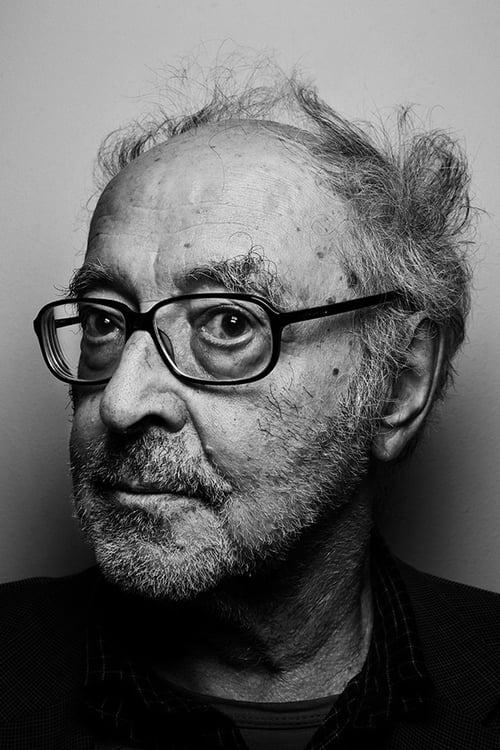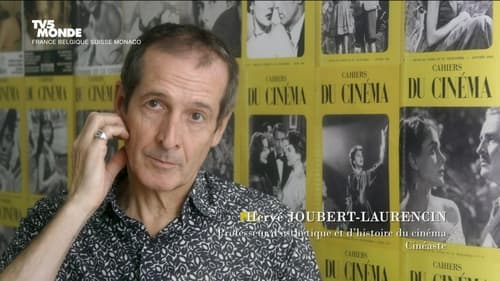
Self

Director
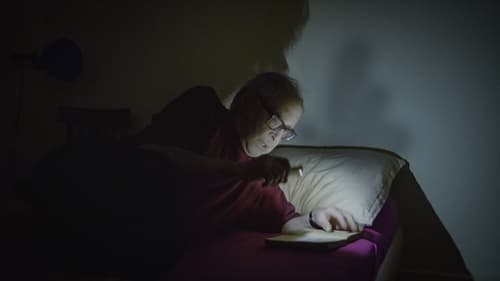
Himself
"We should start with a correspondence, maybe we will not correspond to one another. Ebrahim can send me a letter this Friday, and I'll answer him next Friday. So, see you Friday, Robinson!" And so, Jean-Luc Godard stages himself in his daily thought, wisely desperate, and sends images and words from Switzerland to the other side of the Channel. In his mansion in Sussex, Ebrahim Golestan tries to decode these UFO-messages and skilfully seeks to bring them back to the appearance of reason. And so on, until the day a veil falls over the two Gods on the run. Does the existence of poets still have any meaning in these times of distress?
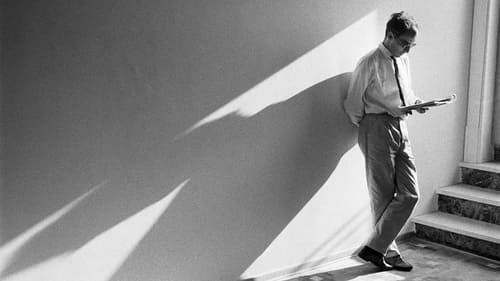
Jean-Luc Godard is cinema, its quintessence. Just turned 91, he has made more than 140 films. We hate him as much as we worship him. Where does his aura come from? From legendary films of course, but also from Godard himself. He is a public figure as much as a man shrouded in mystery. Everything and its opposite, he has taken all possible paths. It is not easy to seize such a legendary, enigmatic giant. Godard’s itinerary follows one direction only: a constant renewal of his art. He sees the creative act as a necessary act of criticism and deconstruction.” I always start from the negative. I am a positive man who starts from the negative”. The artist reinvents himself tirelessly, and inevitably destroys himself. This portrait wants to take us beyond the clichés of a myth that has sometimes become caricatural, to meet a man more sentimental than it seems, a man inhabited, sometimes surpassed, by his art. Because yes, Godard is human. Not just a machine who thinks and creates images.

During the quarantine promoted by the Coronavirus, hundreds of videos posted on Darwin's personal Instagram become a biased diary of our time, of the last 10 years and, at the same time, a deep dive into his being, a dive for those who see and for those who made, an experience of discovery, resistance and contemplation, for both sides.

Archive Footage (Himself)

Self (archival footage)
For Jean-Luc Godard,
with all the admiration and affection of Jacques Perconte and Nicole Brenez.
December 3, 2020.

Self (archive footage)
Born in Berlin in 1896, Lotte Eisner became famous for her passionate involvement in the world of both German and French cinema. In 1936, together with Henri Langlois, she founded the Cinémathèque Française with the goal of saving from destruction films, costumes, sets, posters, and other treasures of the 7th Art. A Jew exiled in Paris, she became a pillar of the capital's cultural scene, where she promoted German cinema.

Self (archive footage)
A short film by Joel Nguyen, made for his mother. Influenced from Agnès Varda

Self (archive footage)
A short film by Joel Nguyen, made for his mother. Influenced from Agnès Varda

Writer
A special version of ‘Dans le noir du temps’ for viewers in Ramallah and the Gaza Strip.

Director
A special version of ‘Dans le noir du temps’ for viewers in Ramallah and the Gaza Strip.
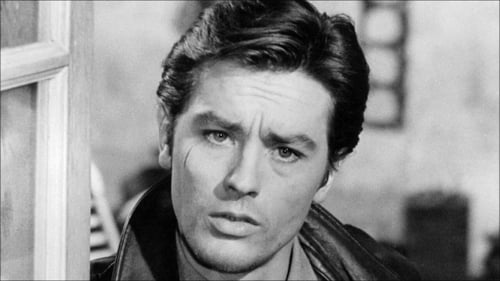
Self (archive footage)

Self (archive footage)
This documentary recounts the life of the late composer Michel Legrand, known for his works on Les Parapluies de Cherbourg or Les Demoiselles De Rochefort with the famous director Jacques Demy.

himself
In 2010, Godard's Film Socialisme explores the sinking of political ideals in Europe. In 2012, the Costa Concordia, which had served as an allegorical platform for Godard, sank in front of the cameras of passengers and the world. In 2018, Paul Grivas Film Catastrophe, looks at images of the disaster to revisit the film factory
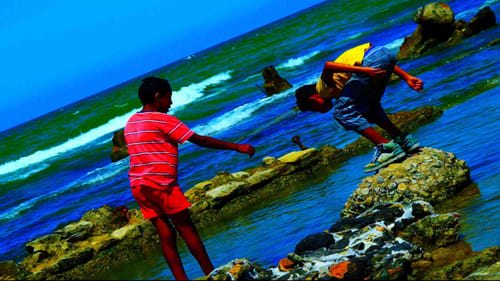
Narrator (voice)
Jean-Luc Godard returns with a bracing, beautiful and confrontational essay film. Splicing together classic film clips and newsreel footage, often stretched, saturated and distorted almost beyond recognition, The Image Book interrogates our relationship with film, culture and global politics.

Editor
Jean-Luc Godard returns with a bracing, beautiful and confrontational essay film. Splicing together classic film clips and newsreel footage, often stretched, saturated and distorted almost beyond recognition, The Image Book interrogates our relationship with film, culture and global politics.

Writer
Jean-Luc Godard returns with a bracing, beautiful and confrontational essay film. Splicing together classic film clips and newsreel footage, often stretched, saturated and distorted almost beyond recognition, The Image Book interrogates our relationship with film, culture and global politics.

Director
Jean-Luc Godard returns with a bracing, beautiful and confrontational essay film. Splicing together classic film clips and newsreel footage, often stretched, saturated and distorted almost beyond recognition, The Image Book interrogates our relationship with film, culture and global politics.

Self (archive footage)

Rue du Temple, Rolle, Switzerland, June 2013.

Himself (archive footage) (uncredited)
Major actress of the New Wave, Anna Karina is bound to the great renewal of cinema in the 1960s. Her companion in life, Dennis Berry revisits the story of her memories with Jean-Luc Godard and the great directors she knew, her memorable meeting with Serge Gainsbourg, and also, more recently, her career as a singer. With a gaze halfway between mischief and severity, the New Wave's Danish muse embodied a new feminity – deeply linked with women's liberation.

Self (archive footage)

Self (archive footage)
An inquiry into two of the most influencial French filmakers friendship and feud.
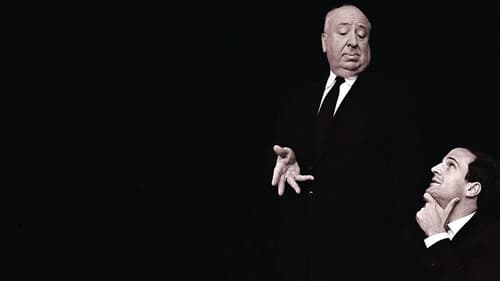
Self (archive footage) (uncredited)
En 1962, los cineastas Alfred Hitchcock y François Truffaut se encerraron para tener una larga conversación de cincuenta horas y quinientas preguntas sobre el cine del maestro del suspense. Hitchcock se encontraba en la cima de su creatividad, y Truffaut ya había hecho Los 400 golpes y Tirad sobre el pianista. El resultado fue el libro El cine según Hitchcock, un texto imprescindible para los amantes y estudiosos del séptimo arte.

Himself
Jean-Luc Godard's acceptance video for the 2015 'Prix d’honneur'.

Editor
Jean-Luc Godard's acceptance video for the 2015 'Prix d’honneur'.

Director
Jean-Luc Godard's acceptance video for the 2015 'Prix d’honneur'.

(archive material)
At the end of the 1960s the post-war generation began to revolt against their parents. This was a generation disillusioned by anti-communist capitalism and a state apparatus in which they believed they saw fascist tendencies. This generation included journalist Ulrike Meinhof, lawyer Horst Mahler, filmmaker Holger Meins as well as students Gudrun Ensslin and Andreas Baader.
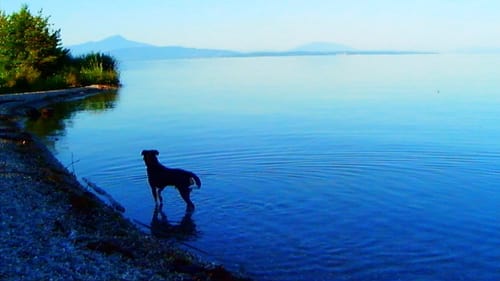
Narrator (voice)
La fragmentación del relato deja entrever la relación entre una mujer casada y un hombre soltero, que se aman y se pelean. Mientras, un perro vaga entre el campo y la ciudad.

Writer
La fragmentación del relato deja entrever la relación entre una mujer casada y un hombre soltero, que se aman y se pelean. Mientras, un perro vaga entre el campo y la ciudad.

Director
La fragmentación del relato deja entrever la relación entre una mujer casada y un hombre soltero, que se aman y se pelean. Mientras, un perro vaga entre el campo y la ciudad.
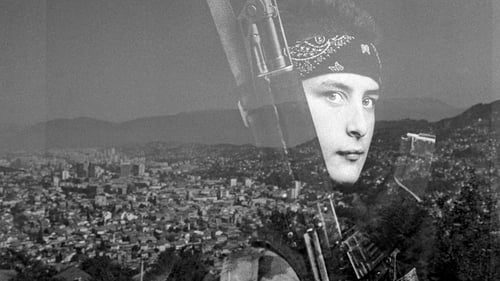
Director
Lo curioso de esta película es el hecho de que hasta trece cineastas van a aportar su pequeño granito de arena con la intención de mostrar varias perspectivas acerca de Sarajevo, exhibiendo con ello una serie de lecciones sobre los aspectos más ilusionantes pero también más crueles de dicho territorio en el viejo continente. La trama arranca en el desarrollo de la Primera Guerra Mundial, siguiendo a continuación con muchos de los sucesos ocurridos en uno de los puntos más destacados en lo que se refiere a la evolución histórica de Europa en el siglo XX.
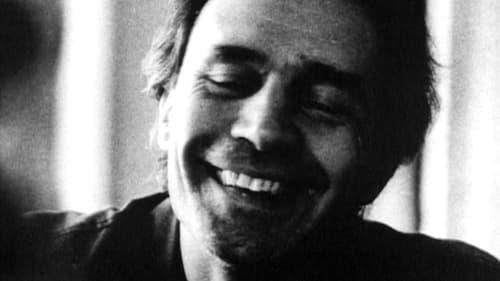
Himself
Rather than writing a simple letter to explain his absence from the press conference for his latest Cannes entry, "Goodbye to Language," at the Cannes Film Festival, instead, legendary filmmaker Jean-Luc Godard created a video "Letter in motion to (Cannes president) Gilles Jacob and (artistic director) Thierry Fremaux." The video intercuts from Godard speaking cryptically about his "path" to key scenes from Godard classics such as "Alphaville" and "King Lear" with Burgess Meredith and Molly Ringwald, and quotes poet Jacques Prevert and philosopher Hannah Arendt.

Writer
Rather than writing a simple letter to explain his absence from the press conference for his latest Cannes entry, "Goodbye to Language," at the Cannes Film Festival, instead, legendary filmmaker Jean-Luc Godard created a video "Letter in motion to (Cannes president) Gilles Jacob and (artistic director) Thierry Fremaux." The video intercuts from Godard speaking cryptically about his "path" to key scenes from Godard classics such as "Alphaville" and "King Lear" with Burgess Meredith and Molly Ringwald, and quotes poet Jacques Prevert and philosopher Hannah Arendt.

Director
Rather than writing a simple letter to explain his absence from the press conference for his latest Cannes entry, "Goodbye to Language," at the Cannes Film Festival, instead, legendary filmmaker Jean-Luc Godard created a video "Letter in motion to (Cannes president) Gilles Jacob and (artistic director) Thierry Fremaux." The video intercuts from Godard speaking cryptically about his "path" to key scenes from Godard classics such as "Alphaville" and "King Lear" with Burgess Meredith and Molly Ringwald, and quotes poet Jacques Prevert and philosopher Hannah Arendt.

Director
Short film included in the film "Les ponts de Sarajevo"

Writer
Short film originally made as part of the anthology film, 3x3D. Jean-Luc Godard's first 3-D film interrogates the history of the technology and explores its possibilities.

Director
Short film originally made as part of the anthology film, 3x3D. Jean-Luc Godard's first 3-D film interrogates the history of the technology and explores its possibilities.

Narrator
Short film originally made as part of the anthology film, 3x3D. Jean-Luc Godard's first 3-D film interrogates the history of the technology and explores its possibilities.
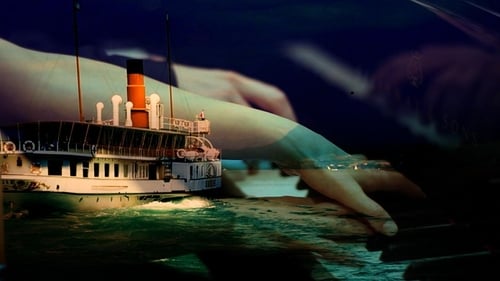
Writer
A triptych of short stereoscopic films by Peter Greenaway, Jean-Luc Godard and Edgar Pêra. Includes "The Three Disasters" by Godard, "Cinesapiens" by Pêra and "Just in Time" by Greenaway.

Director
A triptych of short stereoscopic films by Peter Greenaway, Jean-Luc Godard and Edgar Pêra. Includes "The Three Disasters" by Godard, "Cinesapiens" by Pêra and "Just in Time" by Greenaway.

Editor
A collaborator since 2002 (Notre Musique), Fabrice Aragno did not want to make a documentary ‘on’ but ‘with’ Jean-Luc Godard. The latter decided on a mathematical approach. The TV station asked for 26 minutes, and so Godard suggested they make 26 one-minute sequences, and have 4 shots in each sequence, all recycled from his work.

A collaborator since 2002 (Notre Musique), Fabrice Aragno did not want to make a documentary ‘on’ but ‘with’ Jean-Luc Godard. The latter decided on a mathematical approach. The TV station asked for 26 minutes, and so Godard suggested they make 26 one-minute sequences, and have 4 shots in each sequence, all recycled from his work.

Screenplay
A collaborator since 2002 (Notre Musique), Fabrice Aragno did not want to make a documentary ‘on’ but ‘with’ Jean-Luc Godard. The latter decided on a mathematical approach. The TV station asked for 26 minutes, and so Godard suggested they make 26 one-minute sequences, and have 4 shots in each sequence, all recycled from his work.

Self (archive footage)
The film retraces Jean-Luc Godard's notorious exhibition at the Centre national d'art et de culture Georges Pompidou in Paris between 11 May – 14 August 2006.

Self (archive footage)

Self (archive footage)
Documentary by Luc Lagier exploring Godard's career as a filmmaker, the production of Breathless and his influence and his relationship with American cinema.

Himself
In 2009, in a small theater in Geneva, Switzerland, the film directors Marcel Ophuls and Jean-Luc Godard met for an unusual, surprisngly intimate and sometimes contentious dialogue with each other in front of a live audience. Luckily for us, it was filmed.

Self
An interview with Jean-Luc Godard by Dominique Maillet and Pierre-Henri Gibert, filmed on August 10, 2010 at the Hôtel de Vendôme in Paris.
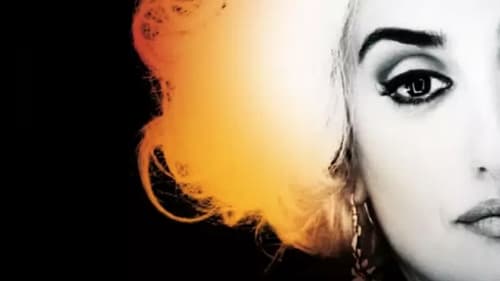
Self
Actresses' hairstyle in movies always carries a strong aesthetic statement associated with erotic, social, and historical meanings. In a bold and unexpected way, the film revisits this ultimate symbol of femininity in international cinema.
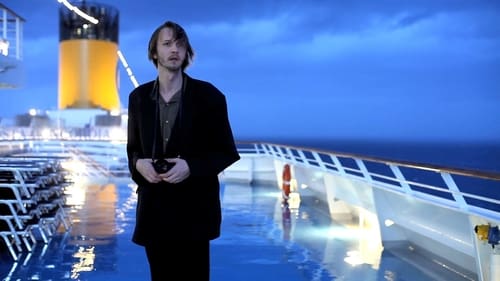
Editor
"Film Socialisme" es una sinfonía en tres movimientos. "Cosas así": en un crucero por el Mediterráneo viajan personajes muy diversos entre los que tienen lugar numerosas conversaciones: un policía de Moscú, un criminal de guerra, un filósofo francés (Alain Badiou), una cantante norteamericana (Patti Smith), un embajador palestino y un ex doble agente. "Nuestra Europa": una noche, una niña y su hermano pequeño convocan a sus padres ante el tribunal de su infancia y les piden explicaciones sobre la libertad, la igualdad y la fraternidad. "Nuestras humanidades": visita a seis lugares que son escenario de leyendas auténticas y falsas, Egipto, Palestina, Odessa, Hellas, Nápoles y Barcelona.

Screenplay
"Film Socialisme" es una sinfonía en tres movimientos. "Cosas así": en un crucero por el Mediterráneo viajan personajes muy diversos entre los que tienen lugar numerosas conversaciones: un policía de Moscú, un criminal de guerra, un filósofo francés (Alain Badiou), una cantante norteamericana (Patti Smith), un embajador palestino y un ex doble agente. "Nuestra Europa": una noche, una niña y su hermano pequeño convocan a sus padres ante el tribunal de su infancia y les piden explicaciones sobre la libertad, la igualdad y la fraternidad. "Nuestras humanidades": visita a seis lugares que son escenario de leyendas auténticas y falsas, Egipto, Palestina, Odessa, Hellas, Nápoles y Barcelona.

Director
"Film Socialisme" es una sinfonía en tres movimientos. "Cosas así": en un crucero por el Mediterráneo viajan personajes muy diversos entre los que tienen lugar numerosas conversaciones: un policía de Moscú, un criminal de guerra, un filósofo francés (Alain Badiou), una cantante norteamericana (Patti Smith), un embajador palestino y un ex doble agente. "Nuestra Europa": una noche, una niña y su hermano pequeño convocan a sus padres ante el tribunal de su infancia y les piden explicaciones sobre la libertad, la igualdad y la fraternidad. "Nuestras humanidades": visita a seis lugares que son escenario de leyendas auténticas y falsas, Egipto, Palestina, Odessa, Hellas, Nápoles y Barcelona.

Self (archive footage)
An in-depth analysis of the relationship between New Wave pioneers François Truffaut and Jean-Luc Godard, as seen through rare archival footage, interviews, and film excerpts — written and narrated by former Cahiers du Cinéma editor Antoine de Baecque.

Himself
An artist-criminal far from home asks his assistant to pirate a rare videotape before the German Post Office Authorities come to confiscate it.

Lui-même

Himself

Brief, fragmented memories of Rohmer spoken by Godard, while the screen shows various titles of articles Rohmer wrote for Cahiers du Cinema.

Director
Brief, fragmented memories of Rohmer spoken by Godard, while the screen shows various titles of articles Rohmer wrote for Cahiers du Cinema.

Self
Fourty-six years since the release of Le mépris, Jean-Luc Godard watches the film again to comment on it and its tumultuous production. Featuring interviews with: Jacques Rozier, Alain Bergala, Michel Piccoli, Charles Bitsch.

Self (archive footage)

Himself
A movie about the contempt of the man who recorded the contempt.

Director
A collage made from fragments.

Self (archive footage)
What is the future of cinema? In 1982, in Cannes, Wim Wenders invited many movie makers to answer this question. 26 years later, the question remains, but Wenders is now on the other side of the camera.

Editor
Introduction of the 2008 Viennale.

Screenplay
Introduction of the 2008 Viennale.

Director
Introduction of the 2008 Viennale.

Self (archive footage)
What is the state of cinema and what being a filmmaker means? What are the measures taken to protect authors' copyright? What is their legal status in different countries? (Sequel to “Filmmakers vs. Tycoons.”)

Director
A collection of short films by 16 European directors.
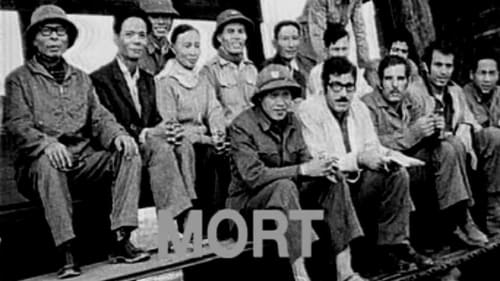
A dense work, citing everyone from Tarantino and Verhoeven to Artaud and Chaplin, made for Godard's exhibition at the Centre Pompidou, Voyage(s) en utopie.

Screenplay
A dense work, citing everyone from Tarantino and Verhoeven to Artaud and Chaplin, made for Godard's exhibition at the Centre Pompidou, Voyage(s) en utopie.

Director
A dense work, citing everyone from Tarantino and Verhoeven to Artaud and Chaplin, made for Godard's exhibition at the Centre Pompidou, Voyage(s) en utopie.

Director
Director Jean-Luc Godard reflects in this movie about his place in film history, the interaction of film industry and film as art, as well as the act of creating art.

Writer
Jean-Luc Godard, and Anne-Marie Miéville Four Short Films

Director
Jean-Luc Godard, and Anne-Marie Miéville Four Short Films

Narrator
Jean-Luc Godard, and Anne-Marie Miéville Four Short Films

Screenplay
Also punningly known as Ecce Homo; Excès oh! Mot.

Director
Also punningly known as Ecce Homo; Excès oh! Mot.

Contemporary film critics regard the epic film I Am Cuba as a modern masterpiece. The 1964 Cuban/Soviet coproduction marked a watershed moment of cultural collaboration between two nations. Yet the film never found a mass audience, languishing for decades until its reintroduction as a "classic" in the 1990s. Vicente Ferraz explores the strange history of this cinematic tour de force, and the deeper meaning for those who participated in its creation.

Self
This documentary reunites director Peter Lennon and cinematographer Raoul Coutard, who recount the making of their then controversial but now classic documentary on Ireland in the Sixties. Rocky Road to Dublin was screened for only a few weeks at a single Dublin theatre.
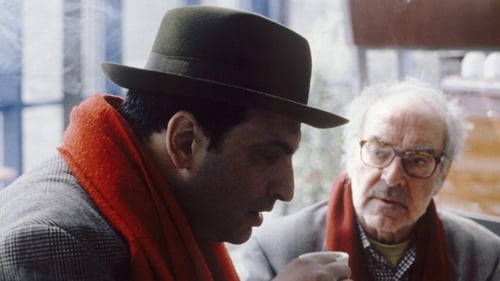
Editor
El filme está compuesto de tres partes, respectivamente tituladas: Reino 1. Infierno; Reino 2: Purgatorio y Reino 3: Paraíso. El infierno, de una duración aproximada de siete u ocho minutos, se compone de distintas imágenes de guerra, sin orden cronológico o histórico. Aviones, tanques, buques de guerra, explosiones, fusilamientos, ejecuciones, poblaciones en fuga, campos devastados, ciudades destruidas, etc. Todo tanto en blanco y negro como en color. Las imágenes quedan mudas, acompañadas por cuatro frases y cuatro músicas (piano). El purgatorio, de aproximadamente una hora de duración, se desarrolla en nuestros días en la ciudad de Sarajevo -mártir entre otras - con ocasión de los Encuentro Europeos del Libro. Se trata de conferencias o de simples conversaciones sobre la necesidad de la poesía, de la imagen de uno mismo y el otro, de Palestina e Israel, etc., (FILMAFFINITY)

Writer
El filme está compuesto de tres partes, respectivamente tituladas: Reino 1. Infierno; Reino 2: Purgatorio y Reino 3: Paraíso. El infierno, de una duración aproximada de siete u ocho minutos, se compone de distintas imágenes de guerra, sin orden cronológico o histórico. Aviones, tanques, buques de guerra, explosiones, fusilamientos, ejecuciones, poblaciones en fuga, campos devastados, ciudades destruidas, etc. Todo tanto en blanco y negro como en color. Las imágenes quedan mudas, acompañadas por cuatro frases y cuatro músicas (piano). El purgatorio, de aproximadamente una hora de duración, se desarrolla en nuestros días en la ciudad de Sarajevo -mártir entre otras - con ocasión de los Encuentro Europeos del Libro. Se trata de conferencias o de simples conversaciones sobre la necesidad de la poesía, de la imagen de uno mismo y el otro, de Palestina e Israel, etc., (FILMAFFINITY)

Director
El filme está compuesto de tres partes, respectivamente tituladas: Reino 1. Infierno; Reino 2: Purgatorio y Reino 3: Paraíso. El infierno, de una duración aproximada de siete u ocho minutos, se compone de distintas imágenes de guerra, sin orden cronológico o histórico. Aviones, tanques, buques de guerra, explosiones, fusilamientos, ejecuciones, poblaciones en fuga, campos devastados, ciudades destruidas, etc. Todo tanto en blanco y negro como en color. Las imágenes quedan mudas, acompañadas por cuatro frases y cuatro músicas (piano). El purgatorio, de aproximadamente una hora de duración, se desarrolla en nuestros días en la ciudad de Sarajevo -mártir entre otras - con ocasión de los Encuentro Europeos del Libro. Se trata de conferencias o de simples conversaciones sobre la necesidad de la poesía, de la imagen de uno mismo y el otro, de Palestina e Israel, etc., (FILMAFFINITY)

Himself
El filme está compuesto de tres partes, respectivamente tituladas: Reino 1. Infierno; Reino 2: Purgatorio y Reino 3: Paraíso. El infierno, de una duración aproximada de siete u ocho minutos, se compone de distintas imágenes de guerra, sin orden cronológico o histórico. Aviones, tanques, buques de guerra, explosiones, fusilamientos, ejecuciones, poblaciones en fuga, campos devastados, ciudades destruidas, etc. Todo tanto en blanco y negro como en color. Las imágenes quedan mudas, acompañadas por cuatro frases y cuatro músicas (piano). El purgatorio, de aproximadamente una hora de duración, se desarrolla en nuestros días en la ciudad de Sarajevo -mártir entre otras - con ocasión de los Encuentro Europeos del Libro. Se trata de conferencias o de simples conversaciones sobre la necesidad de la poesía, de la imagen de uno mismo y el otro, de Palestina e Israel, etc., (FILMAFFINITY)

Editor
Jean-Luc Godard addresses two filmic letters to young Israeli soldiers who were sentenced after refusing to intervene in the occupied territories.

Writer
Jean-Luc Godard addresses two filmic letters to young Israeli soldiers who were sentenced after refusing to intervene in the occupied territories.

Director
Jean-Luc Godard addresses two filmic letters to young Israeli soldiers who were sentenced after refusing to intervene in the occupied territories.

On June 3, 1991, Marguerite Duras gave me her last published work, "The North China Lover", autographed for the first time. She wrote: "For my friend Dominique Auvray, in memory of a wonder of wonders: a still recent past, when we worked together in the cinema". This is a portrait of her as she was cheerful and serious, authentic and provocative, considerate and categorical, but first and foremost young and free.
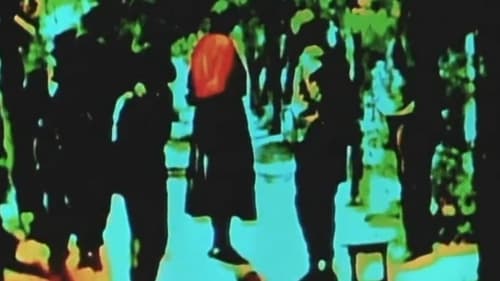
Director
Conceived as a reflection on the theme of time at the turn of the millennium, "Dans le noir du temps" functions as a Pandora’s box which hides all the horrors of the world: the last moments of youth, fame, thoughts, memory, love, silence, history, fear, eternity and, of course, cinema.

Director
Consta de varios episodios, cada uno de ellos realizado por un director. El tema es el tiempo. Es el complemento de "Ten Minutes Older: The Trumpet".
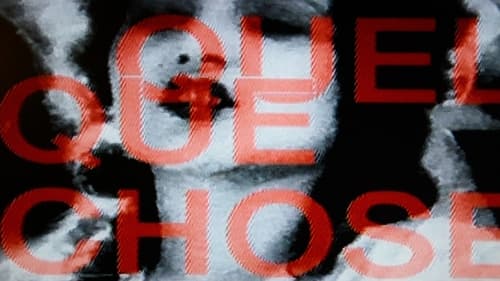
Writer
A very personal look at the history of cinema directed, written and edited by Jean-Luc Godard in his Swiss residence in Rolle for ten years (1988-98); a monumental collage, constructed from film fragments, texts and quotations, photos and paintings, music and sound, and diverse readings; a critical, beautiful and melancholic vision of cinematographic art. (Abridged version of the original collection of eight short films).

Editor
A very personal look at the history of cinema directed, written and edited by Jean-Luc Godard in his Swiss residence in Rolle for ten years (1988-98); a monumental collage, constructed from film fragments, texts and quotations, photos and paintings, music and sound, and diverse readings; a critical, beautiful and melancholic vision of cinematographic art. (Abridged version of the original collection of eight short films).

Self - Filmmaker / Narrator (voice)
A very personal look at the history of cinema directed, written and edited by Jean-Luc Godard in his Swiss residence in Rolle for ten years (1988-98); a monumental collage, constructed from film fragments, texts and quotations, photos and paintings, music and sound, and diverse readings; a critical, beautiful and melancholic vision of cinematographic art. (Abridged version of the original collection of eight short films).

Director
A very personal look at the history of cinema directed, written and edited by Jean-Luc Godard in his Swiss residence in Rolle for ten years (1988-98); a monumental collage, constructed from film fragments, texts and quotations, photos and paintings, music and sound, and diverse readings; a critical, beautiful and melancholic vision of cinematographic art. (Abridged version of the original collection of eight short films).
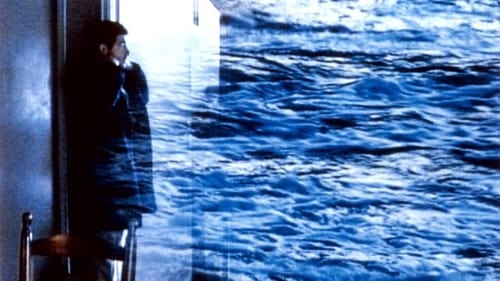
Writer
Edgar, un joven director de cine, busca una actriz para su próximo proyecto, un filme sobre las 4 estaciones del amor (encuentro, pasión, separación y reconciliación). Cuando consigue por fin dar con la chica ideal, una joven llamada Berta, descubre que ésta no está interesada. Poco después ella muere. Edgar recuerda entonces el momento en que la conoció, dos años atrás...

Director
Edgar, un joven director de cine, busca una actriz para su próximo proyecto, un filme sobre las 4 estaciones del amor (encuentro, pasión, separación y reconciliación). Cuando consigue por fin dar con la chica ideal, una joven llamada Berta, descubre que ésta no está interesada. Poco después ella muere. Edgar recuerda entonces el momento en que la conoció, dos años atrás...
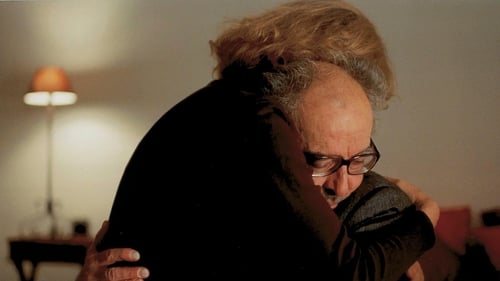
Robert
An elderly couple and a younger man and woman follow up failed seduction attempts with conversation about love and the meaning of life.

Editor
Essay on the influence of arts at the end of the 20th century produced by the Museum of Modern Art.

Writer
Essay on the influence of arts at the end of the 20th century produced by the Museum of Modern Art.

Director
Essay on the influence of arts at the end of the 20th century produced by the Museum of Modern Art.
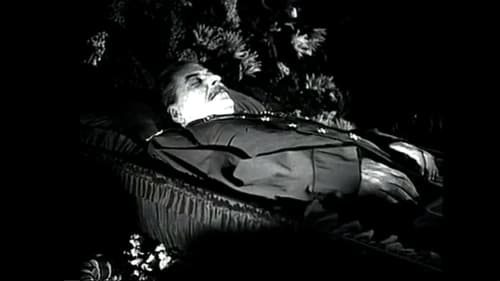
Editor
Commissioned by the heads of the 2000 Cannes Film Festival to make an opening-night short commemorating cinema as it enters its second full century, Godard instead offers up a 17-minute barrage of re-edited footage of wars and Nazi atrocities, interspersed with clips of Maurice Chevalier in "Gigi" and Godard's own "À bout de souffle."

Writer
Commissioned by the heads of the 2000 Cannes Film Festival to make an opening-night short commemorating cinema as it enters its second full century, Godard instead offers up a 17-minute barrage of re-edited footage of wars and Nazi atrocities, interspersed with clips of Maurice Chevalier in "Gigi" and Godard's own "À bout de souffle."

Director
Commissioned by the heads of the 2000 Cannes Film Festival to make an opening-night short commemorating cinema as it enters its second full century, Godard instead offers up a 17-minute barrage of re-edited footage of wars and Nazi atrocities, interspersed with clips of Maurice Chevalier in "Gigi" and Godard's own "À bout de souffle."

Self
Documental amplio que indaga en el pasado y el presente de la "Nouvelle Vague" francesa, corriente cinematográfica que a finales de la década de los años 50 reunió a un grupo de cineastas franceses en torno a la revista "Cahiers du Cinema". (FILMAFFINITY)
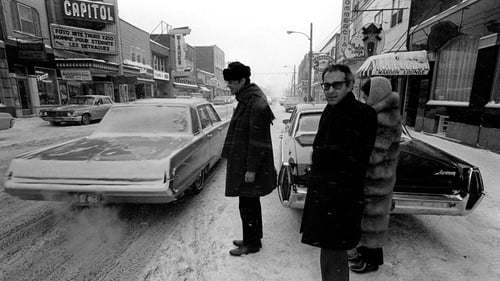
Himself (voice)

Self (archive footage)
A compilation of the most spectacular TV moments thanks to the presence and evocation of Jean-Luc Godard on the small screen. Godard's presence has never been, and never will be, anodyne or banal. The subversion of everyday television.

Editor
Part 8 of Godard's 8 part examination of the history of the concept of cinema and how it relates to the 20th century.

Writer
Part 8 of Godard's 8 part examination of the history of the concept of cinema and how it relates to the 20th century.

Part 8 of Godard's 8 part examination of the history of the concept of cinema and how it relates to the 20th century.

Director
Part 8 of Godard's 8 part examination of the history of the concept of cinema and how it relates to the 20th century.

Editor
Part 7 of Godard's 8 part examination of the history of the concept of cinema and how it relates to the 20th century.

Writer
Part 7 of Godard's 8 part examination of the history of the concept of cinema and how it relates to the 20th century.

Part 7 of Godard's 8 part examination of the history of the concept of cinema and how it relates to the 20th century.

Director
Part 7 of Godard's 8 part examination of the history of the concept of cinema and how it relates to the 20th century.

Editor
Part 6 of Godard's 8 part examination of the history of the concept of cinema and how it relates to the 20th century

Writer
Part 6 of Godard's 8 part examination of the history of the concept of cinema and how it relates to the 20th century

Part 6 of Godard's 8 part examination of the history of the concept of cinema and how it relates to the 20th century

Director
Part 6 of Godard's 8 part examination of the history of the concept of cinema and how it relates to the 20th century

Editor
Part 5 of Godard's 8 part examination of the history of the concept of cinema and how it relates to the 20th century.

Writer
Part 5 of Godard's 8 part examination of the history of the concept of cinema and how it relates to the 20th century.

Part 5 of Godard's 8 part examination of the history of the concept of cinema and how it relates to the 20th century.

Director
Part 5 of Godard's 8 part examination of the history of the concept of cinema and how it relates to the 20th century.

Self
In 1998, Jean-Luc Godard made a short video entitled Adieu au TNS (Farewell to the TNS). Never released (or intended to be), the video is nearly impossible to see and has not been included in any Godard retrospectives to date.

Editor
In 1998, Jean-Luc Godard made a short video entitled Adieu au TNS (Farewell to the TNS). Never released (or intended to be), the video is nearly impossible to see and has not been included in any Godard retrospectives to date.

Director of Photography
In 1998, Jean-Luc Godard made a short video entitled Adieu au TNS (Farewell to the TNS). Never released (or intended to be), the video is nearly impossible to see and has not been included in any Godard retrospectives to date.

Producer
In 1998, Jean-Luc Godard made a short video entitled Adieu au TNS (Farewell to the TNS). Never released (or intended to be), the video is nearly impossible to see and has not been included in any Godard retrospectives to date.

Writer
In 1998, Jean-Luc Godard made a short video entitled Adieu au TNS (Farewell to the TNS). Never released (or intended to be), the video is nearly impossible to see and has not been included in any Godard retrospectives to date.

Director
In 1998, Jean-Luc Godard made a short video entitled Adieu au TNS (Farewell to the TNS). Never released (or intended to be), the video is nearly impossible to see and has not been included in any Godard retrospectives to date.

Producer
Against the barren wintry backdrop of a psychiatric hospital, inpatients and authority figures drift through turgid psychological states. We meet the artist Jean and his lover Monica, patients of the facility, and several characters circling its periphery: a guard, an Episcopalian priest, and a church organist. Minimalizing dialogue and plot intricacy, Tregenza concedes only kernels of information, demanding that the viewer breathe dimensionality into his archetypes. Acting out primal instincts of lust, envy, fear, and love, subjects teeter vulnerably on the brink of sanity and insanity, freedom and repression in their attempts to navigate their existence.

Writer
Una mirada muy personal a la historia del cine dirigida, escrita y editada por Jean-Luc Godard en su residencia suiza de Rolle durante diez años (1988-98); un collage monumental, construido a partir de fragmentos de películas, textos y citas, fotos y pinturas, música y sonidos, y diferentes lecturas; una visión crítica, bella y melancólica del arte del cine.

Editor
Una mirada muy personal a la historia del cine dirigida, escrita y editada por Jean-Luc Godard en su residencia suiza de Rolle durante diez años (1988-98); un collage monumental, construido a partir de fragmentos de películas, textos y citas, fotos y pinturas, música y sonidos, y diferentes lecturas; una visión crítica, bella y melancólica del arte del cine.

Self - Filmmaker / Narrator (voice)
Una mirada muy personal a la historia del cine dirigida, escrita y editada por Jean-Luc Godard en su residencia suiza de Rolle durante diez años (1988-98); un collage monumental, construido a partir de fragmentos de películas, textos y citas, fotos y pinturas, música y sonidos, y diferentes lecturas; una visión crítica, bella y melancólica del arte del cine.

Editor
Una mirada muy personal a la historia del cine dirigida, escrita y editada por Jean-Luc Godard en su residencia suiza de Rolle durante diez años (1988-98); un collage monumental, construido a partir de fragmentos de películas, textos y citas, fotos y pinturas, música y sonidos, y diferentes lecturas; una visión crítica, bella y melancólica del arte del cine.

Writer
Una mirada muy personal a la historia del cine dirigida, escrita y editada por Jean-Luc Godard en su residencia suiza de Rolle durante diez años (1988-98); un collage monumental, construido a partir de fragmentos de películas, textos y citas, fotos y pinturas, música y sonidos, y diferentes lecturas; una visión crítica, bella y melancólica del arte del cine.

Self - Filmmaker / Narrator (voice)
Una mirada muy personal a la historia del cine dirigida, escrita y editada por Jean-Luc Godard en su residencia suiza de Rolle durante diez años (1988-98); un collage monumental, construido a partir de fragmentos de películas, textos y citas, fotos y pinturas, música y sonidos, y diferentes lecturas; una visión crítica, bella y melancólica del arte del cine.

Director
Una mirada muy personal a la historia del cine dirigida, escrita y editada por Jean-Luc Godard en su residencia suiza de Rolle durante diez años (1988-98); un collage monumental, construido a partir de fragmentos de películas, textos y citas, fotos y pinturas, música y sonidos, y diferentes lecturas; una visión crítica, bella y melancólica del arte del cine.

Director
Una mirada muy personal a la historia del cine dirigida, escrita y editada por Jean-Luc Godard en su residencia suiza de Rolle durante diez años (1988-98); un collage monumental, construido a partir de fragmentos de películas, textos y citas, fotos y pinturas, música y sonidos, y diferentes lecturas; una visión crítica, bella y melancólica del arte del cine.

Two housewives discuss philosophical themes (actually an updated dialogue between Plato and Socrates) while doing the house work. The husband of one of them rehearses his part in a theatrical play, reading a 20th century philosophical text about totalitarianism.

Self
This documentary consists mainly of archive interviews of Jean Cocteau, and it features interesting contributions by Jean Marais and especially Jean-Luc Godard, who discusses Cocteau's foray into cinema. The film documents all the artistic media explored by a man who defined himself, first and foremost, as a poet.
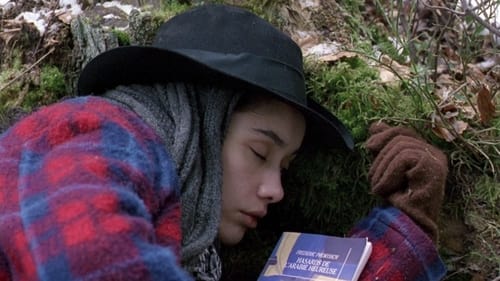
Editor
Una compañía francesa de teatro se propone representar una obra en Sarajevo, pero sus miembros son capturados y recluidos en un campo de prisioneros de guerra. Entonces pedirán ayuda a sus amigos más influyentes para que gestionen su liberación.

Director
Una compañía francesa de teatro se propone representar una obra en Sarajevo, pero sus miembros son capturados y recluidos en un campo de prisioneros de guerra. Entonces pedirán ayuda a sus amigos más influyentes para que gestionen su liberación.

Writer
Una compañía francesa de teatro se propone representar una obra en Sarajevo, pero sus miembros son capturados y recluidos en un campo de prisioneros de guerra. Entonces pedirán ayuda a sus amigos más influyentes para que gestionen su liberación.
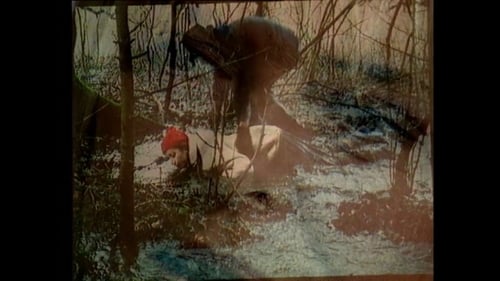
Producer
A short essay on the metamorphosis that art, beauty, love or cinema accomplishes.

Editor
A short essay on the metamorphosis that art, beauty, love or cinema accomplishes.

Screenplay
A short essay on the metamorphosis that art, beauty, love or cinema accomplishes.

Director
A short essay on the metamorphosis that art, beauty, love or cinema accomplishes.

Editor
A reworking of extracts from Andre Malraux, Claude Nuridsany and Marie Perennou, and GK Chesterton.

Producer
A reworking of extracts from Andre Malraux, Claude Nuridsany and Marie Perennou, and GK Chesterton.

Screenplay
A reworking of extracts from Andre Malraux, Claude Nuridsany and Marie Perennou, and GK Chesterton.

(voice)
A reworking of extracts from Andre Malraux, Claude Nuridsany and Marie Perennou, and GK Chesterton.

Director
A reworking of extracts from Andre Malraux, Claude Nuridsany and Marie Perennou, and GK Chesterton.

Director
Experimental short.

Editor
At a lakeside hotel, Michel Piccoli discusses the centennial of cinema with Jean-Luc Godard. Godard asks why should cinema's birthday be celebrated when the history of film is a forgotten subject. Through the remainder of his hotel stay, Piccoli tests Godard's hypothesis.

Himself
At a lakeside hotel, Michel Piccoli discusses the centennial of cinema with Jean-Luc Godard. Godard asks why should cinema's birthday be celebrated when the history of film is a forgotten subject. Through the remainder of his hotel stay, Piccoli tests Godard's hypothesis.

Director
At a lakeside hotel, Michel Piccoli discusses the centennial of cinema with Jean-Luc Godard. Godard asks why should cinema's birthday be celebrated when the history of film is a forgotten subject. Through the remainder of his hotel stay, Piccoli tests Godard's hypothesis.

Editor
Director Jean-Luc Godard reflects in this movie about his place in film history, the interaction of film industry and film as art, as well as the act of creating art.

Producer
Director Jean-Luc Godard reflects in this movie about his place in film history, the interaction of film industry and film as art, as well as the act of creating art.

Self
Director Jean-Luc Godard reflects in this movie about his place in film history, the interaction of film industry and film as art, as well as the act of creating art.

Director
Director Jean-Luc Godard reflects in this movie about his place in film history, the interaction of film industry and film as art, as well as the act of creating art.

Writer
Director Jean-Luc Godard reflects in this movie about his place in film history, the interaction of film industry and film as art, as well as the act of creating art.

Director
A UNICEF-sponsored six-film anthology depicting childhood horrors around the world. "Hassane" - a malnourished child in Niger needs help from the doctors, but village traditions prohibit it. "Liouba" - a child escapes to the forest after a beating by his alcoholic mother, but the games he plays in the forest mirror his troubles at home. "Boy" - a child faces discrimination as the only white student at his school. "Carmelo" - in Bogota a child living on the streets fights to survive. "Oca" - when his twelve year old brother dies free-diving in the Philippines, seven year old Oca must take his place on the job. "L'enfance de l'art" - children living and playing in a war zone are touched by violence.
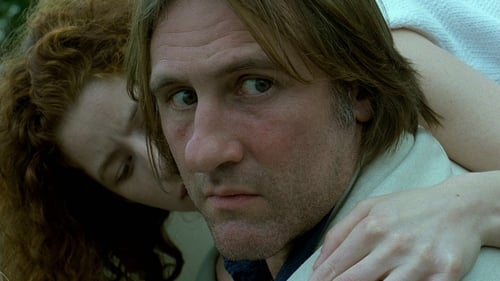
Editor
This complex allegorical tale tells the story of man’s quest for spiritual meaning. When God enters the body of 1980s filmmaker Simon Donnadieu, his wife Rachel realizes that something has gone awry, but chooses to remain faithful to her erratically-behaving husband.

Director
This complex allegorical tale tells the story of man’s quest for spiritual meaning. When God enters the body of 1980s filmmaker Simon Donnadieu, his wife Rachel realizes that something has gone awry, but chooses to remain faithful to her erratically-behaving husband.

Writer
This complex allegorical tale tells the story of man’s quest for spiritual meaning. When God enters the body of 1980s filmmaker Simon Donnadieu, his wife Rachel realizes that something has gone awry, but chooses to remain faithful to her erratically-behaving husband.
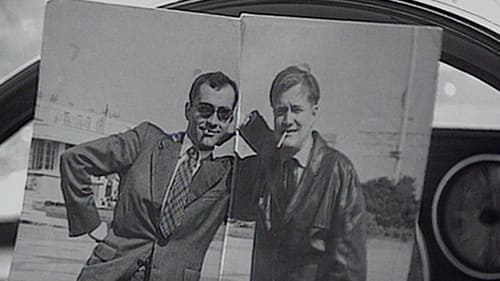
Self (voice) (archive footage)
Claude Ventura's documentary Chambre 12, Hotel de Suede, was made for the French television channel Arte in 1993. Ventura checks into room twelve in the hotel's final week of operation: it is demolished the day after he checks out. Room twelve was one of the principal locations for Jean-Luc Godard's New Wave masterpiece Breathless, and Ventura's documentary investigates the production of Godard's film.
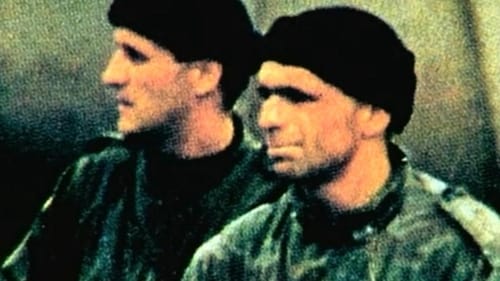
Writer
A short two-minute rumination on the once volatile situation during the period of the Bosnian War presented in the form of a photo-montage with accompanying text.

Editor
A short two-minute rumination on the once volatile situation during the period of the Bosnian War presented in the form of a photo-montage with accompanying text.

Narrator
A short two-minute rumination on the once volatile situation during the period of the Bosnian War presented in the form of a photo-montage with accompanying text.

Director
A short two-minute rumination on the once volatile situation during the period of the Bosnian War presented in the form of a photo-montage with accompanying text.
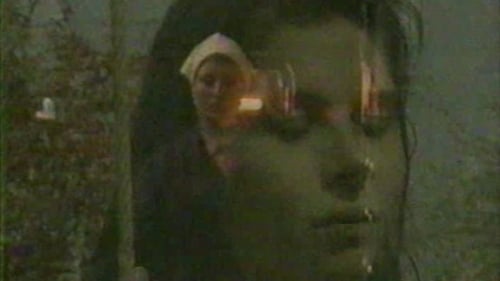
The idiot: Prince Mishkin
A famous French filmmaker is hired by a major Hollywood producer to make a documentary on the state of post-Cold War Russia. The filmmaker, though, subverts the project by stubbornly remaining in France and casting himself as the title character of Dostoyevsky's "The Idiot," offering up a series of typically Godardian musings on art, politics, the nature of images and the future of cinema.

Editor
A famous French filmmaker is hired by a major Hollywood producer to make a documentary on the state of post-Cold War Russia. The filmmaker, though, subverts the project by stubbornly remaining in France and casting himself as the title character of Dostoyevsky's "The Idiot," offering up a series of typically Godardian musings on art, politics, the nature of images and the future of cinema.

Writer
A famous French filmmaker is hired by a major Hollywood producer to make a documentary on the state of post-Cold War Russia. The filmmaker, though, subverts the project by stubbornly remaining in France and casting himself as the title character of Dostoyevsky's "The Idiot," offering up a series of typically Godardian musings on art, politics, the nature of images and the future of cinema.

Director
A famous French filmmaker is hired by a major Hollywood producer to make a documentary on the state of post-Cold War Russia. The filmmaker, though, subverts the project by stubbornly remaining in France and casting himself as the title character of Dostoyevsky's "The Idiot," offering up a series of typically Godardian musings on art, politics, the nature of images and the future of cinema.

Thanks
A fearless Antigone, refusing to allow the dishonored body of her murdered brother Polynices to be devoured by vultures and dogs, defies the Thebian tyrant Creon by burying him.

Self
An intimate window into one of the great movements in film history that brought about an evolution in the art of cinema. The documentary portrays the movement with insight on the lives and works of Jean-Luc Godard, François Truffaut and other principal players in the New Wave.

Director
Children living and playing in a war zone are touched by violence. Part of How Are the Kids? (1990), a UNICEF-sponsored six-film anthology depicting childhood horrors around the world.

Director
En 1991, la ONG Amnistía Internacional encargó 30 cortometrajes a 30 realizadores franceses, para montar un film colectivo que denunciara casos concretos de violación de los derechos humanos por razones políticas.
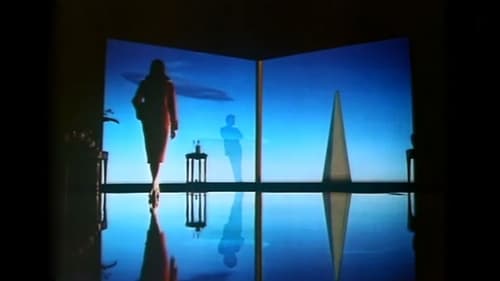
Director
A collection of European T.V. commercials directed by a variety of well-known directors from across Europe and the U.S. Compiled and produced by Jean-Marie Boursicot.
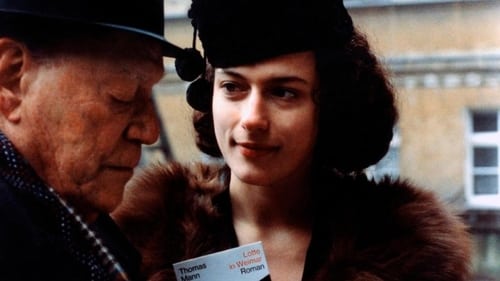
Editor
La televisión francesa pidió a Godard que rodara algo sobre la soledad, y el resultado fue esta película. El director volvió a utilizar el personaje de Lemmy Caution, protagonista de "Alphaville".

Writer
La televisión francesa pidió a Godard que rodara algo sobre la soledad, y el resultado fue esta película. El director volvió a utilizar el personaje de Lemmy Caution, protagonista de "Alphaville".

Director
La televisión francesa pidió a Godard que rodara algo sobre la soledad, y el resultado fue esta película. El director volvió a utilizar el personaje de Lemmy Caution, protagonista de "Alphaville".

Director
A video letter composed for Amnesty International's 'Lest We Forget' series.
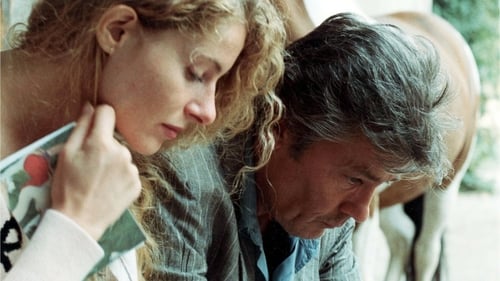
Editor
Composed entirely of literary quotations from many different sources and from several historical periods, the loose narrative concerns a drifter found by a rich woman who soon falls in love with him. A drowning accident takes place and the drifter dies, but some time later he reappears in the woman’s life looking for a job. Or could it be the man’s twin brother?

Writer
Composed entirely of literary quotations from many different sources and from several historical periods, the loose narrative concerns a drifter found by a rich woman who soon falls in love with him. A drowning accident takes place and the drifter dies, but some time later he reappears in the woman’s life looking for a job. Or could it be the man’s twin brother?

Director
Composed entirely of literary quotations from many different sources and from several historical periods, the loose narrative concerns a drifter found by a rich woman who soon falls in love with him. A drowning accident takes place and the drifter dies, but some time later he reappears in the woman’s life looking for a job. Or could it be the man’s twin brother?

Writer
Una mirada muy personal a la historia del cine dirigida, escrita y editada por Jean-Luc Godard en su residencia suiza de Rolle durante diez años (1988-98); un collage monumental, construido a partir de fragmentos de películas, textos y citas, fotos y pinturas, música y sonidos, y diferentes lecturas; una visión crítica, bella y melancólica del arte del cine.

Editor
Una mirada muy personal a la historia del cine dirigida, escrita y editada por Jean-Luc Godard en su residencia suiza de Rolle durante diez años (1988-98); un collage monumental, construido a partir de fragmentos de películas, textos y citas, fotos y pinturas, música y sonidos, y diferentes lecturas; una visión crítica, bella y melancólica del arte del cine.

Self - Filmmaker / Narrator (voice)
Una mirada muy personal a la historia del cine dirigida, escrita y editada por Jean-Luc Godard en su residencia suiza de Rolle durante diez años (1988-98); un collage monumental, construido a partir de fragmentos de películas, textos y citas, fotos y pinturas, música y sonidos, y diferentes lecturas; una visión crítica, bella y melancólica del arte del cine.

Writer
Una mirada muy personal a la historia del cine dirigida, escrita y editada por Jean-Luc Godard en su residencia suiza de Rolle durante diez años (1988-98); un collage monumental, construido a partir de fragmentos de películas, textos y citas, fotos y pinturas, música y sonidos, y diferentes lecturas; una visión crítica, bella y melancólica del arte del cine.

Editor
Una mirada muy personal a la historia del cine dirigida, escrita y editada por Jean-Luc Godard en su residencia suiza de Rolle durante diez años (1988-98); un collage monumental, construido a partir de fragmentos de películas, textos y citas, fotos y pinturas, música y sonidos, y diferentes lecturas; una visión crítica, bella y melancólica del arte del cine.

Self - Filmmaker / Narrator (voice)
Una mirada muy personal a la historia del cine dirigida, escrita y editada por Jean-Luc Godard en su residencia suiza de Rolle durante diez años (1988-98); un collage monumental, construido a partir de fragmentos de películas, textos y citas, fotos y pinturas, música y sonidos, y diferentes lecturas; una visión crítica, bella y melancólica del arte del cine.

Director
Una mirada muy personal a la historia del cine dirigida, escrita y editada por Jean-Luc Godard en su residencia suiza de Rolle durante diez años (1988-98); un collage monumental, construido a partir de fragmentos de películas, textos y citas, fotos y pinturas, música y sonidos, y diferentes lecturas; una visión crítica, bella y melancólica del arte del cine.

Director
Una mirada muy personal a la historia del cine dirigida, escrita y editada por Jean-Luc Godard en su residencia suiza de Rolle durante diez años (1988-98); un collage monumental, construido a partir de fragmentos de películas, textos y citas, fotos y pinturas, música y sonidos, y diferentes lecturas; una visión crítica, bella y melancólica del arte del cine.

Nathanael, the 2000 year-old robot
A daring deconstruction of consumerist behavior featuring a robot and Miss Clio Darty, with a voiceover by Godard and Anne-Marie Miéville, this philosophical "report," like so many of Godard's commissions, was rejected by its funders.

Director
A daring deconstruction of consumerist behavior featuring a robot and Miss Clio Darty, with a voiceover by Godard and Anne-Marie Miéville, this philosophical "report," like so many of Godard's commissions, was rejected by its funders.

Writer
Cortometraje realizado por Jean-Luc Godard y financiado por la empresa Telecom Francia, pero nunca emitido. (FILMAFFINITY)

Director
Cortometraje realizado por Jean-Luc Godard y financiado por la empresa Telecom Francia, pero nunca emitido. (FILMAFFINITY)

Director
In 1988, Figaro magazine asked a few famous directors to direct a series of short movies to celebrate the 10 years of the revue. The movies have been released for the French revolution bicentenary. Includes: Werner Herzog's Les Gaulois, David Lynch's The Cowboy and the Frenchman, Andrzej Wajda's Proust contre la déchéance, Luigi Comencini's Pèlerinage à Agen, Jean-Luc Godard's Le dernier mot.

Writer
A rare short done in much of the same vein of “Puissance de la Parole”, where there is no shortage of cross-dissolve and rapid montage effects. Here, the sources are between fashion clips, street footage, and a number of paintings, to which Godard narrates the implications of what is being seen.

Director
A rare short done in much of the same vein of “Puissance de la Parole”, where there is no shortage of cross-dissolve and rapid montage effects. Here, the sources are between fashion clips, street footage, and a number of paintings, to which Godard narrates the implications of what is being seen.

Director
A short commissioned piece on 'famous last words' set in WWII.

Director
Second series of commercial spots made for Marithé and François Girbaud.
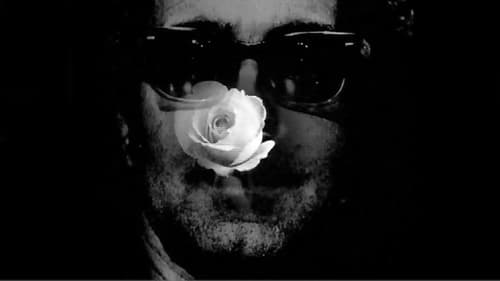
Director
Jean-Luc Godard interviewed by French Critic Serge Daney at the time when Godard was working on his project "Histoire(s) du cinéma".

Self
Jean-Luc Godard interviewed by French Critic Serge Daney at the time when Godard was working on his project "Histoire(s) du cinéma".
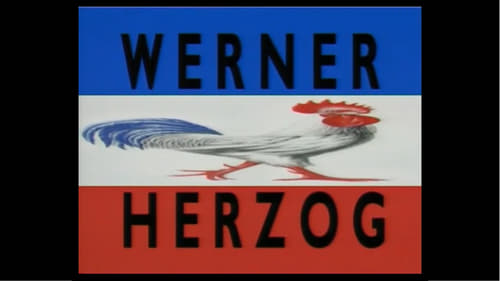
Writer
Two segments make up this short film. The first portion called “The French” has two men taste testing some delicious wine, and the other, titled “The Gauls”, is of men playing rugby. This short by Werner Herzog is part of the “The French as Seen By…” series. It was initiated and sponsored by the newspaper Le Figaro, as part of the 1988 celebration of the tenth anniversary of its magazine section.

Editor
This film is made up several sketches in which certain actors play several real or fictional roles to a background of rock music. The lead character, played by Godard himself, is an annoyingly perfectionist film-maker determined to wring every last drop of the finest performance possible from his stars.

Producer
This film is made up several sketches in which certain actors play several real or fictional roles to a background of rock music. The lead character, played by Godard himself, is an annoyingly perfectionist film-maker determined to wring every last drop of the finest performance possible from his stars.

Screenplay
This film is made up several sketches in which certain actors play several real or fictional roles to a background of rock music. The lead character, played by Godard himself, is an annoyingly perfectionist film-maker determined to wring every last drop of the finest performance possible from his stars.

Idiot / Prince
This film is made up several sketches in which certain actors play several real or fictional roles to a background of rock music. The lead character, played by Godard himself, is an annoyingly perfectionist film-maker determined to wring every last drop of the finest performance possible from his stars.

Director
This film is made up several sketches in which certain actors play several real or fictional roles to a background of rock music. The lead character, played by Godard himself, is an annoyingly perfectionist film-maker determined to wring every last drop of the finest performance possible from his stars.
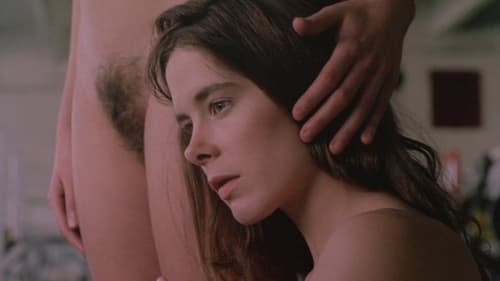
Director
In 1986, the director and producer Don Boyd approached ten of the world’s greatest directors and invited them to make a short film set to an operatic aria of their choice. Together, their contributions formed the movie 'Aria'. Here, the legendary French filmmaker Jean-Luc Godard, director of 'Breathless' and 'Pierrot Le Fou', brings his own unique interpretaton to Jean-Baptiste Lully's opera 'Armide'
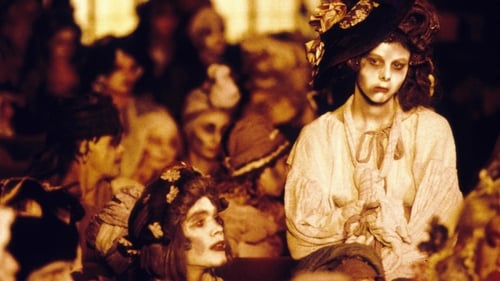
Director
Película realizada por diez famosos directores y salpicada a menudo con toques humorísticos. Los distintos episodios están dedicados a arias operísticas de grandes compositores: Verdi, Puccini o Wagner, entre otros. Robert Altman, Bruce Beresford, Jean-Luc Godard, Derek Jarman, Franc Roddam, Nicolas Roeg, Ken Russell, Charles Sturridge, Julien Temple y Bill Bryden son los directores que participan en esta película.
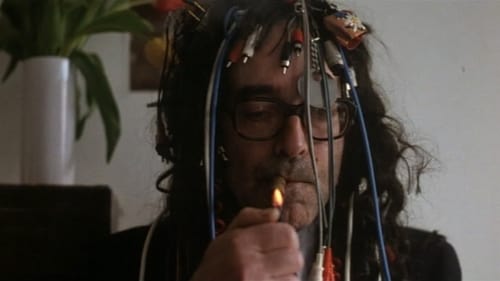
Editor
A descendant of Shakespeare tries to restore his plays in a world rebuilding itself after the Chernobyl catastrophe obliterates most of human civilization.

Director
A descendant of Shakespeare tries to restore his plays in a world rebuilding itself after the Chernobyl catastrophe obliterates most of human civilization.

Professor Pluggy (uncredited)
A descendant of Shakespeare tries to restore his plays in a world rebuilding itself after the Chernobyl catastrophe obliterates most of human civilization.

Writer
A descendant of Shakespeare tries to restore his plays in a world rebuilding itself after the Chernobyl catastrophe obliterates most of human civilization.

Director
First series of commercial spots made for Marithé and François Girbaud.
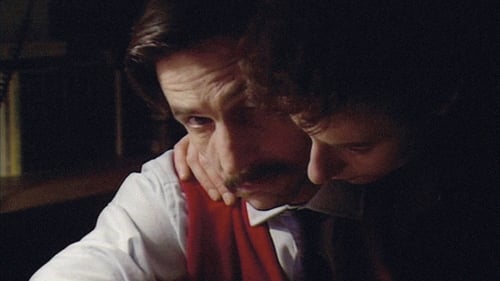
Writer
El director Gaspard Bazin está preparando un nuevo largometraje y organiza castings para elegir a los figurantes. Por ahora se encuentra en proceso de financiación. Hizo un llamamiento a Jean Almereyda, un antiguo productor de moda venido a menos al que le cuesta cada vez más conseguir financiación para arrancar sus proyectos. Por su parte su esposa, Eurídice, sueña con ser una estrella de cine. Mientras Almereyda arriesga su vida para financiar la película, Gaspard elige a Eurydice como protagonista... Adaptación de la novela policíaca "The Soft Centre" de James Hadley Chase.

El director Gaspard Bazin está preparando un nuevo largometraje y organiza castings para elegir a los figurantes. Por ahora se encuentra en proceso de financiación. Hizo un llamamiento a Jean Almereyda, un antiguo productor de moda venido a menos al que le cuesta cada vez más conseguir financiación para arrancar sus proyectos. Por su parte su esposa, Eurídice, sueña con ser una estrella de cine. Mientras Almereyda arriesga su vida para financiar la película, Gaspard elige a Eurydice como protagonista... Adaptación de la novela policíaca "The Soft Centre" de James Hadley Chase.

Director
El director Gaspard Bazin está preparando un nuevo largometraje y organiza castings para elegir a los figurantes. Por ahora se encuentra en proceso de financiación. Hizo un llamamiento a Jean Almereyda, un antiguo productor de moda venido a menos al que le cuesta cada vez más conseguir financiación para arrancar sus proyectos. Por su parte su esposa, Eurídice, sueña con ser una estrella de cine. Mientras Almereyda arriesga su vida para financiar la película, Gaspard elige a Eurydice como protagonista... Adaptación de la novela policíaca "The Soft Centre" de James Hadley Chase.

Himself (Archive photos)
Jean-Pierre Gorin interacts with a club of model railroad train enthusiasts and his mentor, artist/writer Manny Farber.
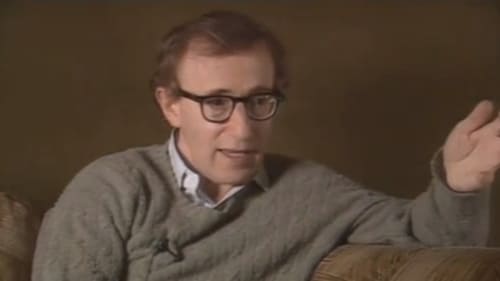
Editor
Revolutionary French New Wave director Jean-Luc Godard conducts a twenty-five minute interview with influential and acclaimed American director Woody Allen on the cultural radiation, the ubiquity and significance of Television, and how Television compares with cinema as a medium and form of expression.

Self
Revolutionary French New Wave director Jean-Luc Godard conducts a twenty-five minute interview with influential and acclaimed American director Woody Allen on the cultural radiation, the ubiquity and significance of Television, and how Television compares with cinema as a medium and form of expression.

Director
Revolutionary French New Wave director Jean-Luc Godard conducts a twenty-five minute interview with influential and acclaimed American director Woody Allen on the cultural radiation, the ubiquity and significance of Television, and how Television compares with cinema as a medium and form of expression.

Executive Producer
Estrenada junto con "Yo te saludo, María" de Jean-Luc Godard, "El libro de María" es un mediometraje sobre cómo la separación de unos padres afecta a su hija Marie.
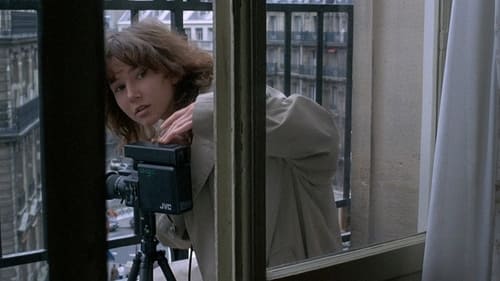
Screenplay
Emile Chenal and his wife, Françoise, leaned on boxing manager Jim Fox Warner to cough up the considerable sum of money that he owes them, with both the police and the mob circling the situation. In the same hotel, Inspector Neveu looks into a murder that took place years before, and his storyline overlaps with the arc of the Chenals.

Director
Emile Chenal and his wife, Françoise, leaned on boxing manager Jim Fox Warner to cough up the considerable sum of money that he owes them, with both the police and the mob circling the situation. In the same hotel, Inspector Neveu looks into a murder that took place years before, and his storyline overlaps with the arc of the Chenals.

Jean-Luc Godard and Philippe Sollers meet in Paris to discuss Godard's film Je vous salue, Marie, and many other things.
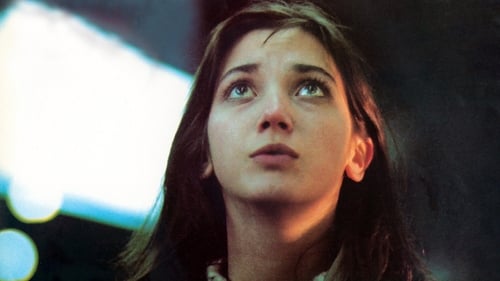
Writer
María es una joven normal que juega al baloncesto y que ayuda a su padre en una gasolinera. Un día María descubre un día que está embarazada, a pesar de no haberse acostado con ningún hombre, ni siquiera con su novio José, un taxista que no puede creerse que pueda tener un hijo siendo su novia virgen.

Director
María es una joven normal que juega al baloncesto y que ayuda a su padre en una gasolinera. Un día María descubre un día que está embarazada, a pesar de no haberse acostado con ningún hombre, ni siquiera con su novio José, un taxista que no puede creerse que pueda tener un hijo siendo su novia virgen.
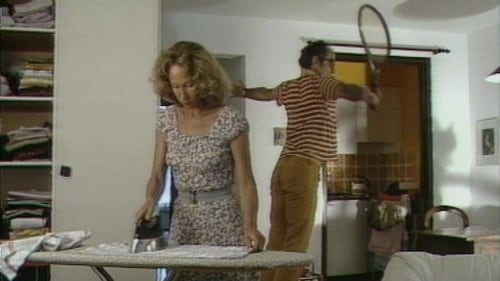
Editor
Jean-Luc Godard and Anne-Marie Miéville talk about their films, while doing everyday tasks around their house.

Writer
Jean-Luc Godard and Anne-Marie Miéville talk about their films, while doing everyday tasks around their house.

Director
Jean-Luc Godard and Anne-Marie Miéville talk about their films, while doing everyday tasks around their house.

Himself
Jean-Luc Godard and Anne-Marie Miéville talk about their films, while doing everyday tasks around their house.

Director
Durante un fallido atraco a un banco, en el que participa la terrorista Carmen, Antonio, un guardia de seguridad, intenta seducirla. Para evitar ser arrestada, ella aparenta corresponder a su pretendiente, y ambos se refugian en un apartamento. Sin embargo, Carmen sigue vinculada al terrorismo, y el próximo objetivo de la banda es un secuestro.

Uncle Jeannot
Durante un fallido atraco a un banco, en el que participa la terrorista Carmen, Antonio, un guardia de seguridad, intenta seducirla. Para evitar ser arrestada, ella aparenta corresponder a su pretendiente, y ambos se refugian en un apartamento. Sin embargo, Carmen sigue vinculada al terrorismo, y el próximo objetivo de la banda es un secuestro.

Self
Notes on the inception and making of Hail Mary.

Director
Notes on the inception and making of Hail Mary.
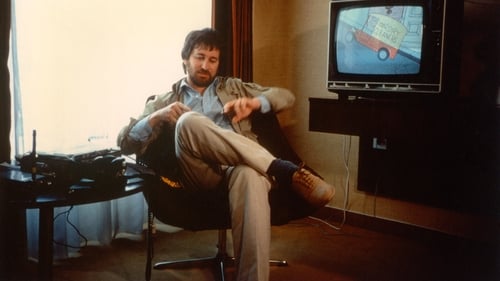
Self
During the 1982 Cannes Film Festival, Wenders asks a number of global film directors to, one at a time, go into a hotel room, turn on the camera and answer a simple question: "What is the future of cinema?"
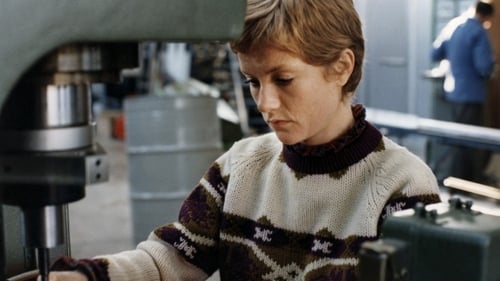
Editor
Jerzy, un director polaco, está rodando un filme sobre pinturas famosas. Isabelle, una muchacha tartamuda de clase obrera, pierde su trabajo. Ambos se conocen, se convierten en amantes y se van a vivir a Polonia.

Writer
Jerzy, un director polaco, está rodando un filme sobre pinturas famosas. Isabelle, una muchacha tartamuda de clase obrera, pierde su trabajo. Ambos se conocen, se convierten en amantes y se van a vivir a Polonia.

Director
Jerzy, un director polaco, está rodando un filme sobre pinturas famosas. Isabelle, una muchacha tartamuda de clase obrera, pierde su trabajo. Ambos se conocen, se convierten en amantes y se van a vivir a Polonia.

Director
Notes on the movie Passion

Director
1981: at the moment the left won power, French television commissioned Godard to make a film on the theme of change. Like Lettre à Freddy Buache, this film is born of the impossibility of carrying out the commission. For the space where change appears is not the image but the gap between images.

Narrator / Self
Producido inicialmente para emitirse en televisión, en este trabajo Jean-Luc Godard habla sobre la práctica del cine y se pregunta sobre el origen de la creatividad. (FILMAFFINITY)

Director
Producido inicialmente para emitirse en televisión, en este trabajo Jean-Luc Godard habla sobre la práctica del cine y se pregunta sobre el origen de la creatividad. (FILMAFFINITY)
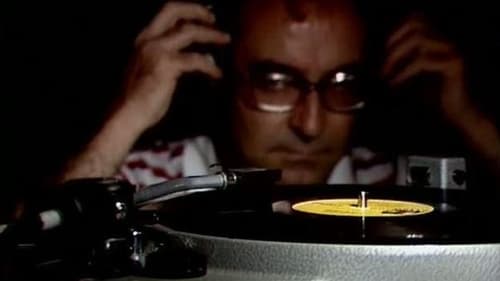
Editor
This short film is Godard’s message to the people of Lausanne, specifically journalist and critic Freddy Buache, addressing his reasons why he will not make a film about their town’s 500th anniversary. Rather than cynical or defensive, Godard's bemused narration of the footage of Lausanne is imaginative and even playful, a rumination on cinema's possibilities.

Himself
This short film is Godard’s message to the people of Lausanne, specifically journalist and critic Freddy Buache, addressing his reasons why he will not make a film about their town’s 500th anniversary. Rather than cynical or defensive, Godard's bemused narration of the footage of Lausanne is imaginative and even playful, a rumination on cinema's possibilities.

Director
This short film is Godard’s message to the people of Lausanne, specifically journalist and critic Freddy Buache, addressing his reasons why he will not make a film about their town’s 500th anniversary. Rather than cynical or defensive, Godard's bemused narration of the footage of Lausanne is imaginative and even playful, a rumination on cinema's possibilities.

Writer
This short film is Godard’s message to the people of Lausanne, specifically journalist and critic Freddy Buache, addressing his reasons why he will not make a film about their town’s 500th anniversary. Rather than cynical or defensive, Godard's bemused narration of the footage of Lausanne is imaginative and even playful, a rumination on cinema's possibilities.

N°106
Reel 11 of Gérard Courant's on-going Cinematon series.

Self
El co-fundador de la agencia de prensa Gamma, Raymond Depardon, rodó este documental sobre los fotógrafos de prensa en París. Siguió y filmo a los fotógrafos durante el mes de octubre de 1980.

Director
Godard experimental film with montages combining "Sauve qui peut (la vie) and other films by other filmmakers

Self
A televisual journey guided by Jean-Luc Godard inside his film Sauve qui peut (la vie), incorporating filmed conversations between him and Isabelle Huppert and the film critic Christian Defaye.

Editor
A televisual journey guided by Jean-Luc Godard inside his film Sauve qui peut (la vie), incorporating filmed conversations between him and Isabelle Huppert and the film critic Christian Defaye.

Writer
A televisual journey guided by Jean-Luc Godard inside his film Sauve qui peut (la vie), incorporating filmed conversations between him and Isabelle Huppert and the film critic Christian Defaye.

Director
A televisual journey guided by Jean-Luc Godard inside his film Sauve qui peut (la vie), incorporating filmed conversations between him and Isabelle Huppert and the film critic Christian Defaye.

Screenplay
A video derived from footage Godard kept from his 1981 visit to Francis Ford Coppola's Zoetrope Studios at the time he was making Passion.

Director
A video derived from footage Godard kept from his 1981 visit to Francis Ford Coppola's Zoetrope Studios at the time he was making Passion.
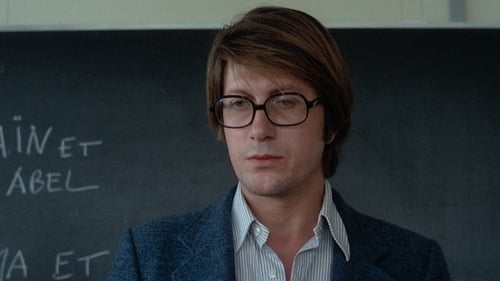
Editor
Una reflexión sobre las relaciones sexuales a través de tres personajes. Denise Rimbaud (Baye) es una editora descontenta con su trabajo que un día decide abandonar a su amante, Paul Godard (Dutronc) e irse a vivir al campo. Paul no quiere abandonar la ciudad, pero no puede vivir sin Denise. El tercer personaje es Isabelle (Huppert), una prostituta que lucha por sobrevivir en la ciudad.

Producer
Una reflexión sobre las relaciones sexuales a través de tres personajes. Denise Rimbaud (Baye) es una editora descontenta con su trabajo que un día decide abandonar a su amante, Paul Godard (Dutronc) e irse a vivir al campo. Paul no quiere abandonar la ciudad, pero no puede vivir sin Denise. El tercer personaje es Isabelle (Huppert), una prostituta que lucha por sobrevivir en la ciudad.

Director
Una reflexión sobre las relaciones sexuales a través de tres personajes. Denise Rimbaud (Baye) es una editora descontenta con su trabajo que un día decide abandonar a su amante, Paul Godard (Dutronc) e irse a vivir al campo. Paul no quiere abandonar la ciudad, pero no puede vivir sin Denise. El tercer personaje es Isabelle (Huppert), una prostituta que lucha por sobrevivir en la ciudad.

As Himself
The famous French film director Jean-Luc Godard is interviewed by British film theorist Peter Wollen and the editor of Framework Don Ranveaud. He talks of the developments in his work, the change in style epitomized by his most recent film, Sauve Qui Peut, his work with Francis Ford Coppola and the relations between his previous films and the new one. He also discusses his radical method of scriptwriting and the critical responses to his latest film.

Self (archive footage)
Explores the complex relationship between the spirit, body, and mind. The film is a nightmare with closed eyes because it counts among the most terrible moments of my life, my second exile, which lasted a very long time. Inspired by an ancient Hindu legend.

Director
Jean-Luc Godard proposes a diary of his creative process. Looking at photos of three actors, Jacques Dutronc, Isabelle Huppert, and Miou-Miou, who were previously cast to play in "Sauve qui peut (la vie)," Godard speaks about great image makers: Dreyer and Wim Wenders, the painters Edward Hopper and Pierre Bonnard.
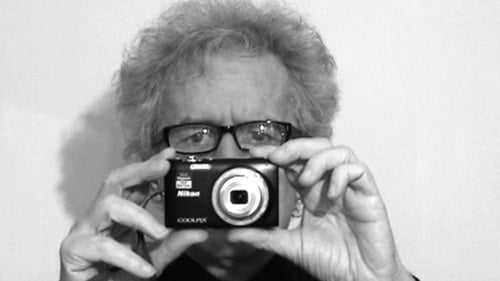
N°106
Cinématon is a 156-hour long experimental film by French director Gérard Courant. It was the longest film ever released until 2011. Composed over 36 years from 1978 until 2006, it consists of a series of over 2,821 silent vignettes (cinématons), each 3 minutes and 25 seconds long, of various celebrities, artists, journalists and friends of the director, each doing whatever they want for the allotted time. Subjects of the film include directors Barbet Schroeder, Nagisa Oshima, Volker Schlöndorff, Ken Loach, Benjamin Cuq, Youssef Chahine, Wim Wenders, Joseph Losey, Jean-Luc Godard, Samuel Fuller and Terry Gilliam, chess grandmaster Joël Lautier, and actors Roberto Benigni, Stéphane Audran, Julie Delpy and Lesley Chatterley. Gilliam is featured eating a 100-franc note, while Fuller smokes a cigar. Courant's favourite subject was a 7-month-old baby. The film was screened in its then-entirety in Avignon in November 2009 and was screened in Redondo Beach, CA on April 9, 2010.

Director
An anti-music video for a Patrick Juvet song

In this astonishing twelve-part project for and about television — the title of which refers to a 19th-century French primer Le tour de la France par deux enfants — Godard and Miéville take a detour through the everyday lives of two children in contemporary France.

Director
In this astonishing twelve-part project for and about television — the title of which refers to a 19th-century French primer Le tour de la France par deux enfants — Godard and Miéville take a detour through the everyday lives of two children in contemporary France.

Writer
Here and Elsewhere takes its name from the contrasting footage it shows of the fedayeen and of a French family watching television at home. Originally shot by the Dziga Vertov Group as a film on Palestinian freedom fighters, Godard later reworked the material alongside Anne-Marie Miéville.

Narrator (voice)
Here and Elsewhere takes its name from the contrasting footage it shows of the fedayeen and of a French family watching television at home. Originally shot by the Dziga Vertov Group as a film on Palestinian freedom fighters, Godard later reworked the material alongside Anne-Marie Miéville.

Producer
Here and Elsewhere takes its name from the contrasting footage it shows of the fedayeen and of a French family watching television at home. Originally shot by the Dziga Vertov Group as a film on Palestinian freedom fighters, Godard later reworked the material alongside Anne-Marie Miéville.

Director
Here and Elsewhere takes its name from the contrasting footage it shows of the fedayeen and of a French family watching television at home. Originally shot by the Dziga Vertov Group as a film on Palestinian freedom fighters, Godard later reworked the material alongside Anne-Marie Miéville.
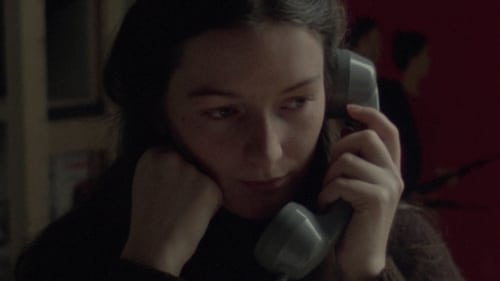
Producer
A film about politics and the media, in which two workers in a newspaper plant attempt to make a film.

Writer
A film about politics and the media, in which two workers in a newspaper plant attempt to make a film.

Director
A film about politics and the media, in which two workers in a newspaper plant attempt to make a film.

A film about politics and the media, in which two workers in a newspaper plant attempt to make a film.

The title and subtitle of this French miniseries are “Six Times Two; Over and under the media”. The “six” refers to the fact that there are six episodes; the “two” has a double meaning.

Director
The title and subtitle of this French miniseries are “Six Times Two; Over and under the media”. The “six” refers to the fact that there are six episodes; the “two” has a double meaning.
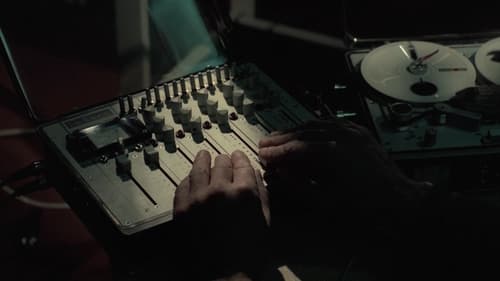
Himself (uncredited)
Jean-Luc Godard mixes video and film in his Grenoble studio, discussing how he secured funding for the film. The action unfolds on two monitors, as a young working-class couple lives in a claustrophobic, high-rise apartment complex and marital discord is set off by the wife’s infidelity.

Writer
Jean-Luc Godard mixes video and film in his Grenoble studio, discussing how he secured funding for the film. The action unfolds on two monitors, as a young working-class couple lives in a claustrophobic, high-rise apartment complex and marital discord is set off by the wife’s infidelity.

Director
Jean-Luc Godard mixes video and film in his Grenoble studio, discussing how he secured funding for the film. The action unfolds on two monitors, as a young working-class couple lives in a claustrophobic, high-rise apartment complex and marital discord is set off by the wife’s infidelity.

Narrator (voice) (uncredited)
The film's subject is a photograph of Jane Fonda visiting Hanoi during the Vietnam War. It asks what the position of the intellectual should be in the class struggle and points out the irony of Jane Fonda's participation in the photo shoot, which was staged.

Writer
The film's subject is a photograph of Jane Fonda visiting Hanoi during the Vietnam War. It asks what the position of the intellectual should be in the class struggle and points out the irony of Jane Fonda's participation in the photo shoot, which was staged.

Director
The film's subject is a photograph of Jane Fonda visiting Hanoi during the Vietnam War. It asks what the position of the intellectual should be in the class struggle and points out the irony of Jane Fonda's participation in the photo shoot, which was staged.
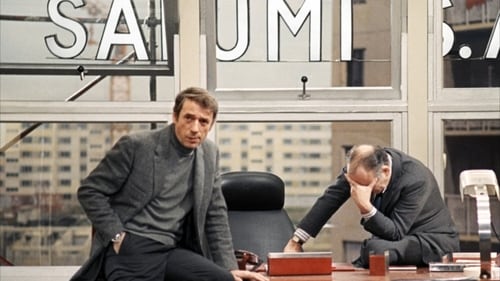
Director
Francia después del mayo del '68. Un matrimonio en crisis, en una sociedad en crisis, se queda atrapado en una fábrica debido a la huelga de los trabajadores. Godard disecciona la estructura de la sociedad, del cine, el amor y la revolución. ¿Puede el amor sobrevivir a la revolución?

Screenplay
Francia después del mayo del '68. Un matrimonio en crisis, en una sociedad en crisis, se queda atrapado en una fábrica debido a la huelga de los trabajadores. Godard disecciona la estructura de la sociedad, del cine, el amor y la revolución. ¿Puede el amor sobrevivir a la revolución?
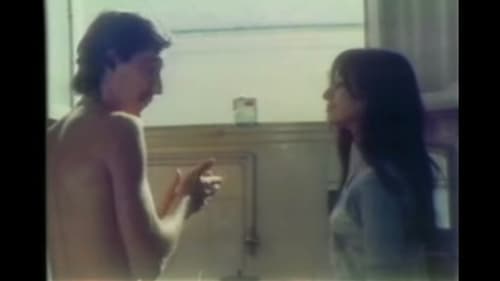
Editor
A couple argue loudly during a news broadcast about Palestine as the man shaves.

Writer
A couple argue loudly during a news broadcast about Palestine as the man shaves.

Director
A couple argue loudly during a news broadcast about Palestine as the man shaves.

Self
Lighter and livelier than the films Jean-Luc Godard had made in France, his U.S. collaboration with Direct Cinema documentarian D. A. Pennebaker was meant to be One A.M., as in “one American movie”; but Godard quit the project and the U.S., where to his dismay he discovered that revolution wasn’t imminent, and Pennebaker edited Godard’s material, to which he and Richard Leacock even added a bit more, releasing the result as One P.M., as in “one parallel movie.” It’s a stunning mixture of cinéma-vérité, political theater, and interviews of key sixties figures.

Director
Lighter and livelier than the films Jean-Luc Godard had made in France, his U.S. collaboration with Direct Cinema documentarian D. A. Pennebaker was meant to be One A.M., as in “one American movie”; but Godard quit the project and the U.S., where to his dismay he discovered that revolution wasn’t imminent, and Pennebaker edited Godard’s material, to which he and Richard Leacock even added a bit more, releasing the result as One P.M., as in “one parallel movie.” It’s a stunning mixture of cinéma-vérité, political theater, and interviews of key sixties figures.
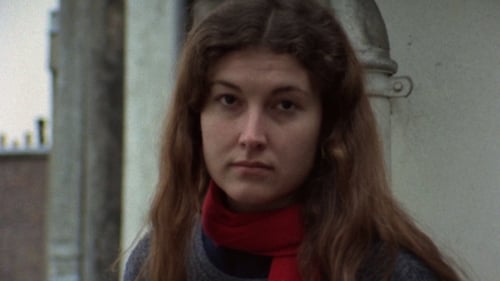
Editor
The film reveals how and why a supposedly revolutionary Italian girl has in fact fallen prey to bourgeois ideology.

Writer
The film reveals how and why a supposedly revolutionary Italian girl has in fact fallen prey to bourgeois ideology.

Director
The film reveals how and why a supposedly revolutionary Italian girl has in fact fallen prey to bourgeois ideology.

Director of Photography
Jean-Luc Godard's and Jean-Pierre Gorin's interpretation of the Chicago Eight / Chicago Seven trial, which followed the 1968 Democratic National Convention protest activities. Judge Hoffman becomes the character Judge Himmler (played by Ernest Menzer) and the defendants become a microcosms of the French Revolution.

Editor
Jean-Luc Godard's and Jean-Pierre Gorin's interpretation of the Chicago Eight / Chicago Seven trial, which followed the 1968 Democratic National Convention protest activities. Judge Hoffman becomes the character Judge Himmler (played by Ernest Menzer) and the defendants become a microcosms of the French Revolution.

Writer
Jean-Luc Godard's and Jean-Pierre Gorin's interpretation of the Chicago Eight / Chicago Seven trial, which followed the 1968 Democratic National Convention protest activities. Judge Hoffman becomes the character Judge Himmler (played by Ernest Menzer) and the defendants become a microcosms of the French Revolution.

Vladimir Lenin (uncredited)
Jean-Luc Godard's and Jean-Pierre Gorin's interpretation of the Chicago Eight / Chicago Seven trial, which followed the 1968 Democratic National Convention protest activities. Judge Hoffman becomes the character Judge Himmler (played by Ernest Menzer) and the defendants become a microcosms of the French Revolution.

Director
Jean-Luc Godard's and Jean-Pierre Gorin's interpretation of the Chicago Eight / Chicago Seven trial, which followed the 1968 Democratic National Convention protest activities. Judge Hoffman becomes the character Judge Himmler (played by Ernest Menzer) and the defendants become a microcosms of the French Revolution.

Editor
Realizada por encargo de un mecenas, esta película constituyó un manifiesto fundacional del Grupo Dziga Vertov. Las estructuras, los clichés y los estereotipos del western tradicional, sirven de coartada para una reflexión sobre la lucha de clases y la des mitificacion del cine burgués

(uncredited)
Realizada por encargo de un mecenas, esta película constituyó un manifiesto fundacional del Grupo Dziga Vertov. Las estructuras, los clichés y los estereotipos del western tradicional, sirven de coartada para una reflexión sobre la lucha de clases y la des mitificacion del cine burgués

Writer
Realizada por encargo de un mecenas, esta película constituyó un manifiesto fundacional del Grupo Dziga Vertov. Las estructuras, los clichés y los estereotipos del western tradicional, sirven de coartada para una reflexión sobre la lucha de clases y la des mitificacion del cine burgués

Director
Realizada por encargo de un mecenas, esta película constituyó un manifiesto fundacional del Grupo Dziga Vertov. Las estructuras, los clichés y los estereotipos del western tradicional, sirven de coartada para una reflexión sobre la lucha de clases y la des mitificacion del cine burgués
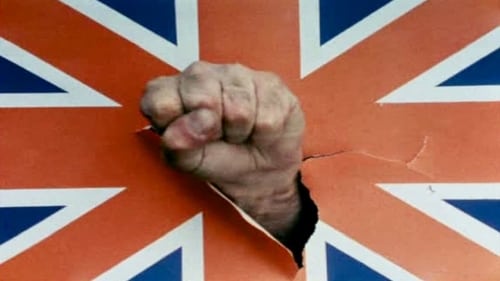
Writer
Jean-Luc Godard brings his firebrand political cinema to the UK, exploring the revolutionary signals in late '60s British society. Constructed as a montage of various disconnected political acts (in line with Godard's then appropriation of Soviet director Dziga Vertov's agitprop techniques), it combines a diverse range of footage, from students discussing The Beatles to the production line at the MG factory in Oxfordshire, burnished with onscreen political sloganeering.
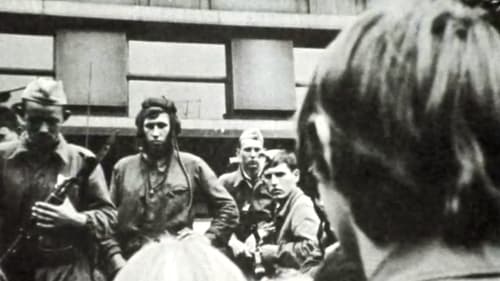
(voice)
Filmed clandestinely in Czechoslovakia on 16mm. It's one of the films Godard made with the Groupe Dziga Vertov - a Marxist film about the political situation after the '68 revolution.

Editor
Filmed clandestinely in Czechoslovakia on 16mm. It's one of the films Godard made with the Groupe Dziga Vertov - a Marxist film about the political situation after the '68 revolution.

Writer
Filmed clandestinely in Czechoslovakia on 16mm. It's one of the films Godard made with the Groupe Dziga Vertov - a Marxist film about the political situation after the '68 revolution.

Director
Filmed clandestinely in Czechoslovakia on 16mm. It's one of the films Godard made with the Groupe Dziga Vertov - a Marxist film about the political situation after the '68 revolution.

Director
Jean-Luc Godard brings his firebrand political cinema to the UK, exploring the revolutionary signals in late '60s British society. Constructed as a montage of various disconnected political acts (in line with Godard's then appropriation of Soviet director Dziga Vertov's agitprop techniques), it combines a diverse range of footage, from students discussing The Beatles to the production line at the MG factory in Oxfordshire, burnished with onscreen political sloganeering.
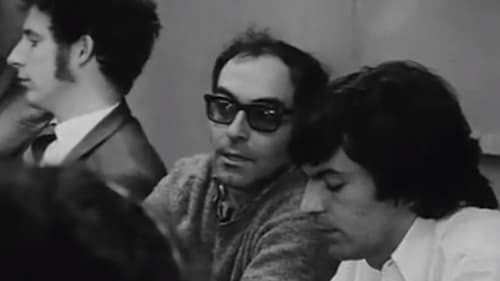
Himself
Spring 1970: Godard and Gorin, on the road, visiting colleges, speaking with Andrew Sarris, and explaining, through illustrated notebooks, their newest Dziga Vertov Group project, a film on Palestine.

Director
Dos jóvenes militantes se reúnen en un estudio de televisión desierto y comienzan a discutir sobre ideas cinematográficas radicales. Son Émile, en tataranieto de Jean-Jacques Rousseau y Patricia, una hija de la Revolución Cultural. Están de acuerdo en que el cine debe reinventarse para sobrevivir, debe volver hasta sus orígenes y volver a empezar desde el principio, usando el sonido y la imagen en una manera radicalmente distinta. (FILMAFFINITY)

Narrator (voice)
Dos jóvenes militantes se reúnen en un estudio de televisión desierto y comienzan a discutir sobre ideas cinematográficas radicales. Son Émile, en tataranieto de Jean-Jacques Rousseau y Patricia, una hija de la Revolución Cultural. Están de acuerdo en que el cine debe reinventarse para sobrevivir, debe volver hasta sus orígenes y volver a empezar desde el principio, usando el sonido y la imagen en una manera radicalmente distinta. (FILMAFFINITY)

Writer
Dos jóvenes militantes se reúnen en un estudio de televisión desierto y comienzan a discutir sobre ideas cinematográficas radicales. Son Émile, en tataranieto de Jean-Jacques Rousseau y Patricia, una hija de la Revolución Cultural. Están de acuerdo en que el cine debe reinventarse para sobrevivir, debe volver hasta sus orígenes y volver a empezar desde el principio, usando el sonido y la imagen en una manera radicalmente distinta. (FILMAFFINITY)
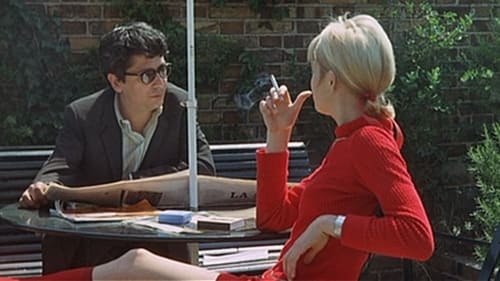
Director
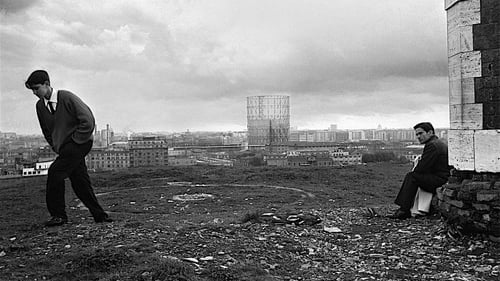
Writer
Cinco directores ofrecen sendas historias en las que se entremezclan el amor y la rabia.

Director
Cinco directores ofrecen sendas historias en las que se entremezclan el amor y la rabia.

Self (uncredited)
A young, unscrupulous director hires an actress and uses the story she tells him of her life to write his screenplay, but fires her and entrusts the leading role to someone else.

Himself
Documentary about Jean-Luc Godard filming Sympathy for the Devil with The Rolling Stones.
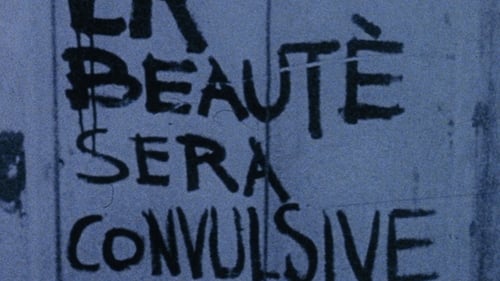
Editor
An analysis of the social upheaval of May 1968, made in the immediate wake of the workers’ and students’ protests. The picture consists of two parts, each with with identical image tracks, and differing narration.

Director of Photography
An analysis of the social upheaval of May 1968, made in the immediate wake of the workers’ and students’ protests. The picture consists of two parts, each with with identical image tracks, and differing narration.

Writer
An analysis of the social upheaval of May 1968, made in the immediate wake of the workers’ and students’ protests. The picture consists of two parts, each with with identical image tracks, and differing narration.

Director
An analysis of the social upheaval of May 1968, made in the immediate wake of the workers’ and students’ protests. The picture consists of two parts, each with with identical image tracks, and differing narration.
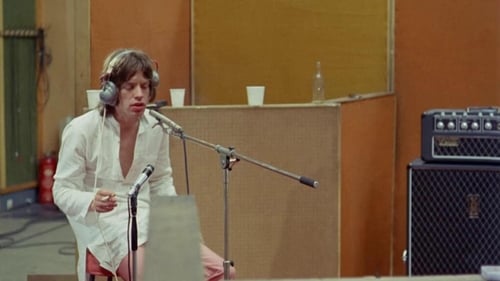
Writer
Tomando como trasfondo el panorama cultural de finales de los 60, Jean-Luc Godard nos ofrece en este documental un testimonio imprescindible de lo que se dio en llamar la contracultura occidental. Con un análisis profundo del movimiento de los Panteras Negras y con referencias a los trabajos de personajes tan relevantes como LeRoi Jones y Eldridge Cleaver, recorremos momentos significativos como una visita a los Rolling Stones en el estudio de grabación. En el DVD se ofrecen las dos versiones que existen de esta película: la del montaje del director y la del montaje del productor.

Director
Tomando como trasfondo el panorama cultural de finales de los 60, Jean-Luc Godard nos ofrece en este documental un testimonio imprescindible de lo que se dio en llamar la contracultura occidental. Con un análisis profundo del movimiento de los Panteras Negras y con referencias a los trabajos de personajes tan relevantes como LeRoi Jones y Eldridge Cleaver, recorremos momentos significativos como una visita a los Rolling Stones en el estudio de grabación. En el DVD se ofrecen las dos versiones que existen de esta película: la del montaje del director y la del montaje del productor.
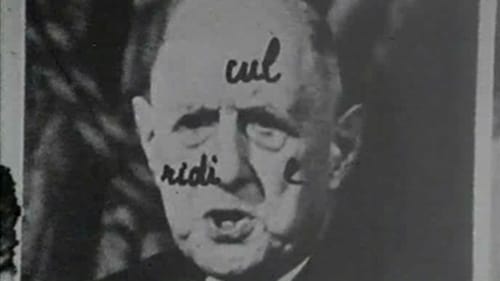
Director
A series of 41 documentary shorts, directed (without credit) by several famous French filmmakers and each running between two and four minutes. Each "tract" espouses a leftist political viewpoint through the filmed depiction of real-life events, including workers' strikes and the events of Paris in May '68.

Himself
Jean-Luc Godard visits the NYU in order to discuss his latest feature "La chinoise" with graduate students on filmmaking and politics.

Director
In the 1968 movement in Paris, Jean-Luc Godard made a 16mm, 3-minute long film, Film-tract No.1968, Le Rouge, in collaboration with French artist Gérard Fromanger. Starting with the shot identifying its title written in red paint on the Le Monde for 31 July 1968, the film shows the process of making Fromanger’s poster image, which is thick red paint flows over a tri-color French flag. —Hye Young Min
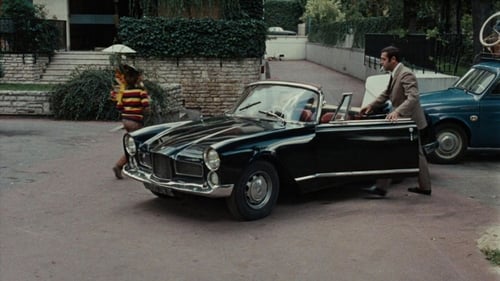
Director
Particular visión del cataclismo de la burguesía a cargo del polémico y genial director francés. Una fábula apocalíptica, desencantada y satírica, definida como un nuevo viaje de Gulliver a través del colapso de la sociedad de consumo representada en una joven pareja de burgueses.

Screenplay
Particular visión del cataclismo de la burguesía a cargo del polémico y genial director francés. Una fábula apocalíptica, desencantada y satírica, definida como un nuevo viaje de Gulliver a través del colapso de la sociedad de consumo representada en una joven pareja de burgueses.
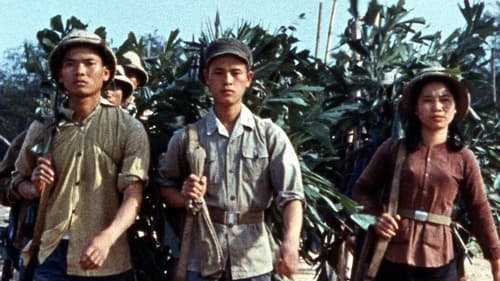
himself
Siete directores realizan conjuntamente este documental contra la intervención estadounidense en Vietnam. Pese a estar dividida en episodios, no se indica explicitamente quién dirige cada parte.

Director
Siete directores realizan conjuntamente este documental contra la intervención estadounidense en Vietnam. Pese a estar dividida en episodios, no se indica explicitamente quién dirige cada parte.
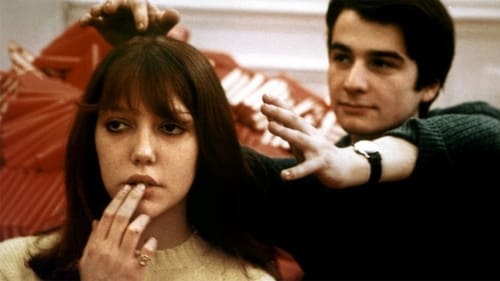
Writer
Godard y el maoismo. Estrenada un año antes del mayo del 68, "La Chinoise" relata las inquietudes por cambiar el mundo de un grupo de estudiantes franceses empapados del pensamiento de Mao Tse Tung. París, durante el verano de 1967, cuando pocos intentaban aplicar los principios que rompieron con la burguesía de la URSS y de los partidos comunistas occidentales en el nombre de Mao Tse Tung. Empapados del pensamiento de Mao y de literatura comunista, un grupo de estudiantes franceses se empieza a preguntar por su posición en el mundo y las posibilidades de cambiarlo, aunque eso signifique considerar el terrorismo como una posible vía...

Director
Godard y el maoismo. Estrenada un año antes del mayo del 68, "La Chinoise" relata las inquietudes por cambiar el mundo de un grupo de estudiantes franceses empapados del pensamiento de Mao Tse Tung. París, durante el verano de 1967, cuando pocos intentaban aplicar los principios que rompieron con la burguesía de la URSS y de los partidos comunistas occidentales en el nombre de Mao Tse Tung. Empapados del pensamiento de Mao y de literatura comunista, un grupo de estudiantes franceses se empieza a preguntar por su posición en el mundo y las posibilidades de cambiarlo, aunque eso signifique considerar el terrorismo como una posible vía...

Lui-même
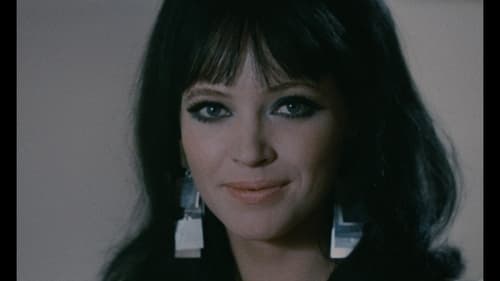
Writer
Comedia de sketches con varios directores, cada uno de los cuales muestra un paso adelante en la historia de la prostitución, desde la prehistoria hasta nuestros días.

Director
Comedia de sketches con varios directores, cada uno de los cuales muestra un paso adelante en la historia de la prostitución, desde la prehistoria hasta nuestros días.
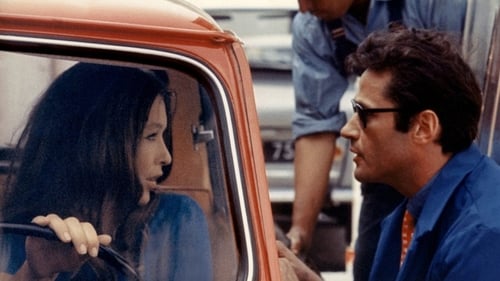
Narrator (voice)
Tomando como punto central las vivencias de Juliette, una mujer casada y con dos hijos que trabaja como ama de casa de día y prostituta por la noche, Godard realiza una especie de documental dramatizado sobre las vidas, las sensaciones, los personajes y los caracteres que pueblan el llamado nuevo París de los años 60.

Writer
Tomando como punto central las vivencias de Juliette, una mujer casada y con dos hijos que trabaja como ama de casa de día y prostituta por la noche, Godard realiza una especie de documental dramatizado sobre las vidas, las sensaciones, los personajes y los caracteres que pueblan el llamado nuevo París de los años 60.

Director
Tomando como punto central las vivencias de Juliette, una mujer casada y con dos hijos que trabaja como ama de casa de día y prostituta por la noche, Godard realiza una especie de documental dramatizado sobre las vidas, las sensaciones, los personajes y los caracteres que pueblan el llamado nuevo París de los años 60.
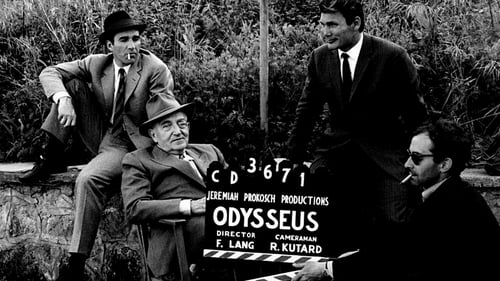
Himself
An hour-long discussion between Fritz Lang and Jean-Luc Godard in which they discuss a variety of art forms, the role of the cinema, their collaboration together, and much more. (Filmed in 1964 but released for TV in 1967.)
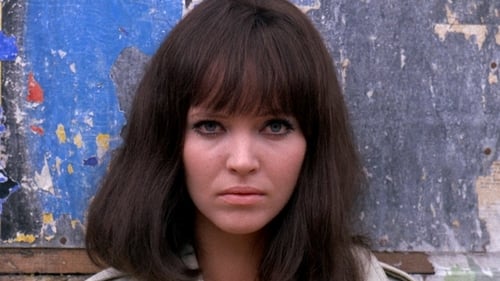
Richard Politzer (voice) (uncredited)
Paula Nelson deberá investigar en Atlantic City (Francia) la muerte de su amante, investigación que se presentará peligrosa debido a la atención que ésta consigue despertar entre los mafiosos de la ciudad. Inspirada en el cine negro americano, Godard realiza un ejercicio de intriga de deliberada incoherencia narrativa.

Director
Paula Nelson deberá investigar en Atlantic City (Francia) la muerte de su amante, investigación que se presentará peligrosa debido a la atención que ésta consigue despertar entre los mafiosos de la ciudad. Inspirada en el cine negro americano, Godard realiza un ejercicio de intriga de deliberada incoherencia narrativa.

Writer
Paula Nelson deberá investigar en Atlantic City (Francia) la muerte de su amante, investigación que se presentará peligrosa debido a la atención que ésta consigue despertar entre los mafiosos de la ciudad. Inspirada en el cine negro americano, Godard realiza un ejercicio de intriga de deliberada incoherencia narrativa.

Collective contribution to a history of cinema, this issue of the “Civilisations” collection also takes part in the genesis of Deux ou trois choses que je sais d'elle and La Chinoise
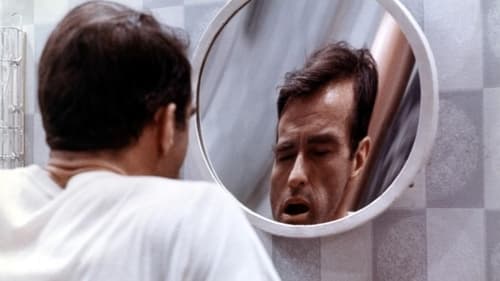
Orlovsky's Friend (uncredited)
La CIA encarga a un científico americano una peligrosa misión en Alemania Oriental: debe encontrarse con un investigador ruso, cuyas obras ha traducido, que le entregará un microfilme con información imprescindible para que los americanos sean los primeros en llegar a la Luna. Una vez allí, agentes de la inteligencia rusa seguirán sus pasos.
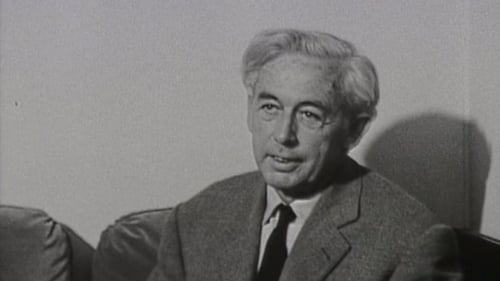
Self
A documentary, originally produced in 1966 for the French TV series "Pour le plaisir," about Robert Bresson's film "Au Hasard Balthazar," featuring interviews and discussions with Bresson, Jean-Luc Godard, Louis Malle, Marguerite Duras and others.
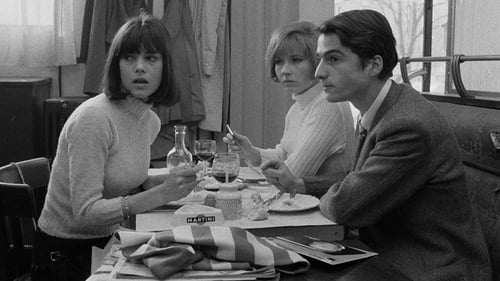
Director
Paul es un joven idealista que acaba de terminar el servicio militar. Conoce a Madeleine, una joven atractiva que aspira a ser cantante pop, y trata de conquistarla. Ambos salen juntos y terminan juntos en la cama, aunque con dos amigas de Madeleine, Elisabeth y Catherine.

Writer
Paul es un joven idealista que acaba de terminar el servicio militar. Conoce a Madeleine, una joven atractiva que aspira a ser cantante pop, y trata de conquistarla. Ambos salen juntos y terminan juntos en la cama, aunque con dos amigas de Madeleine, Elisabeth y Catherine.
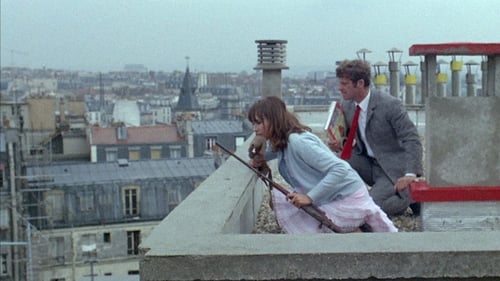
Writer
Ferdinand Griffon, alias 'Pierrot', huye de París con Marianne, la niñera que ha contratado su esposa. La pareja se dirige al sur de Francia, pero el viaje se torna muy peligroso cuando una banda de gángsters con los que Marianne está implicada, les va pisando los talones.

Director
Ferdinand Griffon, alias 'Pierrot', huye de París con Marianne, la niñera que ha contratado su esposa. La pareja se dirige al sur de Francia, pero el viaje se torna muy peligroso cuando una banda de gángsters con los que Marianne está implicada, les va pisando los talones.
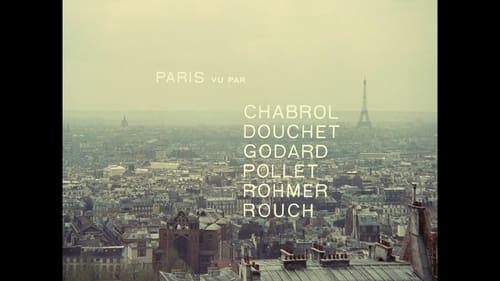
Writer
Película concebida por el productor Barbet Schroeder y compuesta por seis cortometrajes dirigidos por algunos de los mejores directores franceses de la época. Los títulos corresponden a barrios parisinos. Godard rueda una comedia romántica en Montparnasse, Rouch sigue a una chica por la Gare du Nord, Claude Chabrol muestra una infeliz familia burguesa en La Muette, Jean-Daniel Pollet cuenta una desternillante historia sobre el encuentro de un hombre tímido con una prostituta en la Rue Sant-Denis, Jean Douchet narra la historia de unas chicas americanas que se van de paseo con unos franceses por Saint-Germain-des-Prés, y Éric Rohmer sigue a un vendedor que se enzarza en una pelea con un borracho en la Place de l'Étoile y teme haberlo matado.

Director
Película concebida por el productor Barbet Schroeder y compuesta por seis cortometrajes dirigidos por algunos de los mejores directores franceses de la época. Los títulos corresponden a barrios parisinos. Godard rueda una comedia romántica en Montparnasse, Rouch sigue a una chica por la Gare du Nord, Claude Chabrol muestra una infeliz familia burguesa en La Muette, Jean-Daniel Pollet cuenta una desternillante historia sobre el encuentro de un hombre tímido con una prostituta en la Rue Sant-Denis, Jean Douchet narra la historia de unas chicas americanas que se van de paseo con unos franceses por Saint-Germain-des-Prés, y Éric Rohmer sigue a un vendedor que se enzarza en una pelea con un borracho en la Place de l'Étoile y teme haberlo matado.
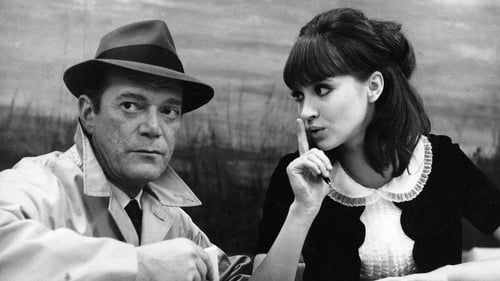
Director
A Alphaville, una ciudad futurista situada en otro planeta, llega el periodista Ivan Johnson, siguiendo la pista del profesor Von Braun. Los otros agentes que le han precedido, Dick Tracy y Flash Gordon, han muerto. Von Braun, apodado Nosferatu, es el creador de Alpha 60, la máquina que comanda la vida mental de los habitantes de la ciudad.

Screenplay
A Alphaville, una ciudad futurista situada en otro planeta, llega el periodista Ivan Johnson, siguiendo la pista del profesor Von Braun. Los otros agentes que le han precedido, Dick Tracy y Flash Gordon, han muerto. Von Braun, apodado Nosferatu, es el creador de Alpha 60, la máquina que comanda la vida mental de los habitantes de la ciudad.

Director
Woman sends the wrong letter to two men in a feisty love triangle tale.
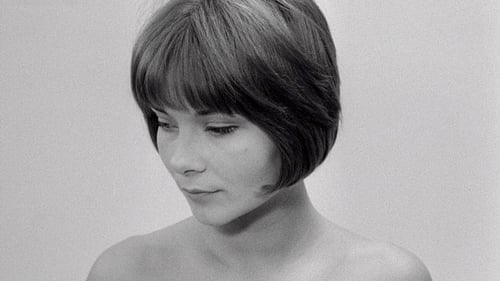
The Narrator (voice) (uncredited)
Narra la vida durante 24 horas de Charlotte (Macha Méril), una mujer casada de París que tiene una aventura con otro hombre (Bernard Noël). Al quedarse embarazada, Charlotte desconoce quién es el padre de su hijo, por lo que tendrá que decidirse entre su marido (Philippe Leroy) o su amante... Narración a cargo del propio Jean-Luc Godard, que contó como asistente en la dirección con Jean-Pierre Léaud.

Screenplay
Narra la vida durante 24 horas de Charlotte (Macha Méril), una mujer casada de París que tiene una aventura con otro hombre (Bernard Noël). Al quedarse embarazada, Charlotte desconoce quién es el padre de su hijo, por lo que tendrá que decidirse entre su marido (Philippe Leroy) o su amante... Narración a cargo del propio Jean-Luc Godard, que contó como asistente en la dirección con Jean-Pierre Léaud.

Director
Narra la vida durante 24 horas de Charlotte (Macha Méril), una mujer casada de París que tiene una aventura con otro hombre (Bernard Noël). Al quedarse embarazada, Charlotte desconoce quién es el padre de su hijo, por lo que tendrá que decidirse entre su marido (Philippe Leroy) o su amante... Narración a cargo del propio Jean-Luc Godard, que contó como asistente en la dirección con Jean-Pierre Léaud.
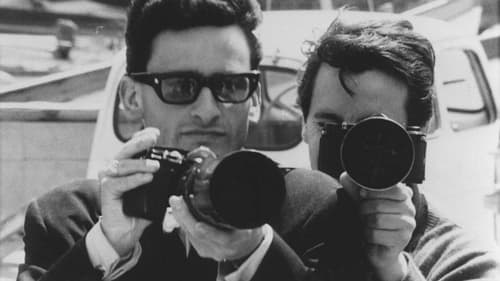
Himself
Paparazzi explores the relationship between Brigitte Bardot and groups of invasive photographers attempting to photograph her while she works on the set of Jean-Luc Godard's film Le Mépris (Contempt). Through video footage of Bardot, interviews with the paparazzi, and still photos of Bardot from magazine covers and elsewhere, director Rozier investigates some of the ramifications of international movie stardom, specifically the loss of privacy to the paparazzi. The film explains the shooting of the film on the island of Capri, and the photographers' valiant, even foolishly dangerous, attempts to get a photograph of Bardot.
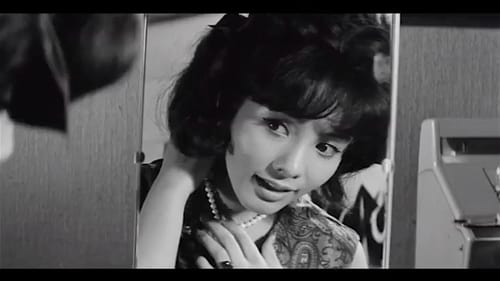
Director
Film por episodios que reúne a directores tan distintos como los franceses Claude Chabrol y Jean-Luc Godard, el italiano Ugo Gregoretti, el japonés Hiromichi Horikawa y el franco-polaco Roman Polanski. Cada uno de ellos relata una estafa supuestamente célebre y real.

Writer
Patricia Leacock, reporter for an american television, is in Morocco on the trail of a counterfeiter-philanthropist. Based on a real story which Chaplin had already thought to adapt into a film.

Director
Patricia Leacock, reporter for an american television, is in Morocco on the trail of a counterfeiter-philanthropist. Based on a real story which Chaplin had already thought to adapt into a film.
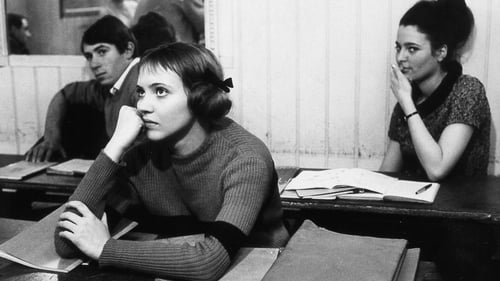
Narrator (voice) (uncredited)
Tres jóvenes (Odile, Arthur y Franz) se conocen en clase de inglés e inmediatamente se hacen amigos. Los tres comparten su interés por la literatura criminal.

Director
Tres jóvenes (Odile, Arthur y Franz) se conocen en clase de inglés e inmediatamente se hacen amigos. Los tres comparten su interés por la literatura criminal.

Screenplay
Tres jóvenes (Odile, Arthur y Franz) se conocen en clase de inglés e inmediatamente se hacen amigos. Los tres comparten su interés por la literatura criminal.

Self
Made for Cinéastes de notre temps series. In 1964, several French New Wave auteurs discuss the success and crisis of the wave. Featuring Claude Chabrol, François Truffaut, Jacques Rivette, Jean-Luc Godard, Jacques Rozier, Jacques Demy, Agnès Varda, Jean Rouch, and many others.
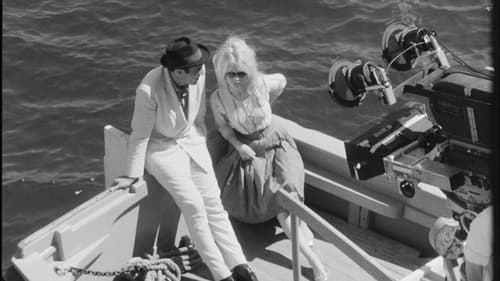
Himself
Documento sobre la filmación de "El desprecio" de Jean-Luc Godard con Brigitte Bardot y Michel Piccoli.
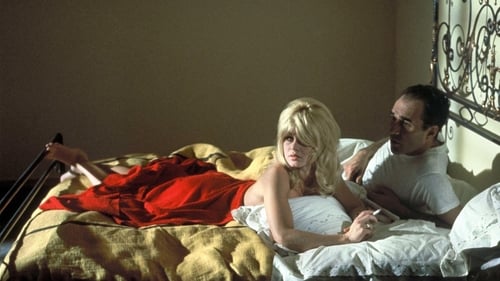
Director
Paul Javal (Michel Piccoli), un autor dramático francés, acepta reescribir algunas escenas para "La Odisea", una película que se va a rodar en Capri bajo la dirección del renombrado director alemán Fritz Lang (Fritz Lang). En un primer encuentro con el productor, el arrogante norteamericano Prokosch (Jack Palance), el escritor deja que su mujer, la bella Camille (Brigitte Bardot), se vaya en el coche con el productor a la finca de éste, lo cual da lugar a un grave mal entendido entre el escritor y su esposa, que cree que la ha ofrecido como moneda de cambio para obtener un mejor pago. Como consecuencia de esta situación, el escritor se verá inmerso en una dolorosa crisis matrimonial.

Lang's Assistant Director
Paul Javal (Michel Piccoli), un autor dramático francés, acepta reescribir algunas escenas para "La Odisea", una película que se va a rodar en Capri bajo la dirección del renombrado director alemán Fritz Lang (Fritz Lang). En un primer encuentro con el productor, el arrogante norteamericano Prokosch (Jack Palance), el escritor deja que su mujer, la bella Camille (Brigitte Bardot), se vaya en el coche con el productor a la finca de éste, lo cual da lugar a un grave mal entendido entre el escritor y su esposa, que cree que la ha ofrecido como moneda de cambio para obtener un mejor pago. Como consecuencia de esta situación, el escritor se verá inmerso en una dolorosa crisis matrimonial.

Screenplay
Paul Javal (Michel Piccoli), un autor dramático francés, acepta reescribir algunas escenas para "La Odisea", una película que se va a rodar en Capri bajo la dirección del renombrado director alemán Fritz Lang (Fritz Lang). En un primer encuentro con el productor, el arrogante norteamericano Prokosch (Jack Palance), el escritor deja que su mujer, la bella Camille (Brigitte Bardot), se vaya en el coche con el productor a la finca de éste, lo cual da lugar a un grave mal entendido entre el escritor y su esposa, que cree que la ha ofrecido como moneda de cambio para obtener un mejor pago. Como consecuencia de esta situación, el escritor se verá inmerso en una dolorosa crisis matrimonial.
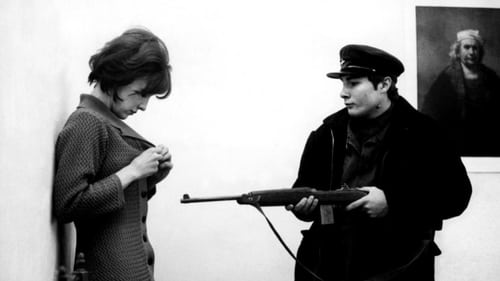
Director
Parábola antimilitarista donde dos campesinos reciben con júbilo la noticia de su movilización, felices y contentos de los desmanes que podrán cometer bajo el uniforme. (FILMAFFINITY)

Writer
Parábola antimilitarista donde dos campesinos reciben con júbilo la noticia de su movilización, felices y contentos de los desmanes que podrán cometer bajo el uniforme. (FILMAFFINITY)
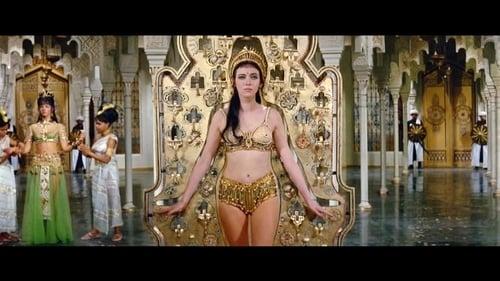
Handwalker
Han prometido a la hermosa princesa árabe Scherezade a Haroun-al-Raschid, un Sultán poderoso de Bagdad, formando parte del harén del sultán. En el transcurso del camino a Bagdad, la caravana donde viaja la princesa es atacada por ladrones beduinos, siendo secuestrada. El emisario y sobrino de Emperador Carlomagno, Renaud de Villecroix, que viaja camino de Bagdad con el objeto de tener audiencia con el Sultán para pedir un salvoconducto para los cristianos para llegar a Tierra Santa, tiene conocimiento del rapto e intentan salvarla. Mientras consigue su liberación, él también sucumbe a las tentaciones ofrecidas por la princesa Scherezade, no pasando ésto inadvertido para el Sultán.
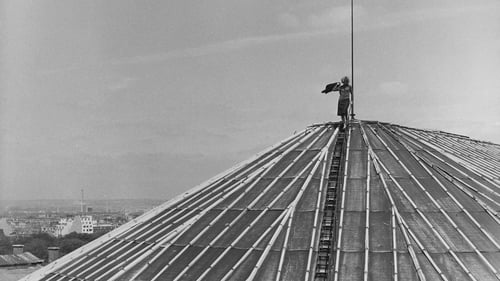
Self (uncredited)
Candid interviews of ordinary people on the meaning of happiness, an often amorphous and inarticulable notion that evokes more basic and fundamentally egalitarian ideals of self-betterment, prosperity, tolerance, economic opportunity, and freedom.

Screenplay
Esta película consta de cuatro historias dirigidas por Jean-Luc Godard, Ugo Gregoretti, Pier Paolo Pasolini y Roberto Rossellini.

Director
Esta película consta de cuatro historias dirigidas por Jean-Luc Godard, Ugo Gregoretti, Pier Paolo Pasolini y Roberto Rossellini.
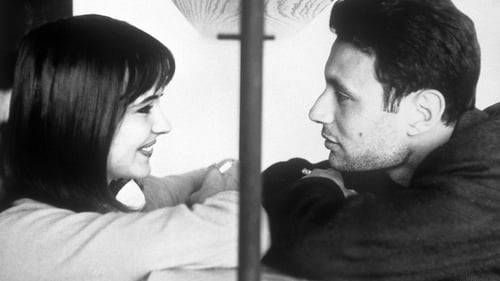
Man at Railway Station (uncredited)
Año 1958, durante la guerra de Francia Argelia. Bruno Forestier, un desertor del ejército francés refugiado en Ginebra, acuerda trabajar para una organización antiterrorista en contra del país africano.

Writer
Año 1958, durante la guerra de Francia Argelia. Bruno Forestier, un desertor del ejército francés refugiado en Ginebra, acuerda trabajar para una organización antiterrorista en contra del país africano.

Director
Año 1958, durante la guerra de Francia Argelia. Bruno Forestier, un desertor del ejército francés refugiado en Ginebra, acuerda trabajar para una organización antiterrorista en contra del país africano.

Writer
Nana (Anna Karina) es una joven veinteañera de provincias que abandona a su marido y a su hijo para intentar iniciar una carrera como actriz en París. Sin dinero, para financiar su nueva vida comienza a trabajar en una tienda de discos en la que no gana mucho dinero. Al no poder pagar el alquiler, su casera la echa de casa, motivo por el que Nana decide ejercer la prostitución.

The Lover Reading Poe (voice) (uncredited)
Nana (Anna Karina) es una joven veinteañera de provincias que abandona a su marido y a su hijo para intentar iniciar una carrera como actriz en París. Sin dinero, para financiar su nueva vida comienza a trabajar en una tienda de discos en la que no gana mucho dinero. Al no poder pagar el alquiler, su casera la echa de casa, motivo por el que Nana decide ejercer la prostitución.

Director
Nana (Anna Karina) es una joven veinteañera de provincias que abandona a su marido y a su hijo para intentar iniciar una carrera como actriz en París. Sin dinero, para financiar su nueva vida comienza a trabajar en una tienda de discos en la que no gana mucho dinero. Al no poder pagar el alquiler, su casera la echa de casa, motivo por el que Nana decide ejercer la prostitución.

Editor
Nana (Anna Karina) es una joven veinteañera de provincias que abandona a su marido y a su hijo para intentar iniciar una carrera como actriz en París. Sin dinero, para financiar su nueva vida comienza a trabajar en una tienda de discos en la que no gana mucho dinero. Al no poder pagar el alquiler, su casera la echa de casa, motivo por el que Nana decide ejercer la prostitución.

A love triangle between 23-year-old Emma (Anna Karina), her older boyfriend (Georges Descrières) and the younger man (Jacques Perrin) she meets while on vacation by herself.
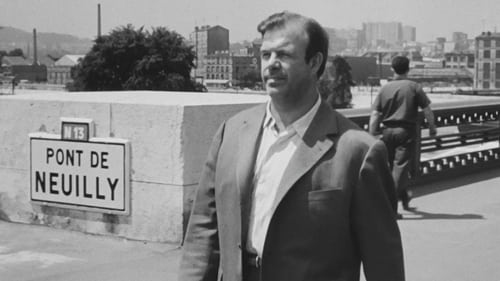
Le Mélomane (uncredited)
Pierre Wesselrin es un músico bohemio y sin dinero que vive en París. Un día, recibe un telegrama en el que se le notifica la muerte de su acaudalada tía. Como ella sólo tenía dos parientes vivos, Pierre piensa que él recibirá, al menos, parte de la herencia, así que celebra una fiesta para celebrar la noticia con sus amigos.
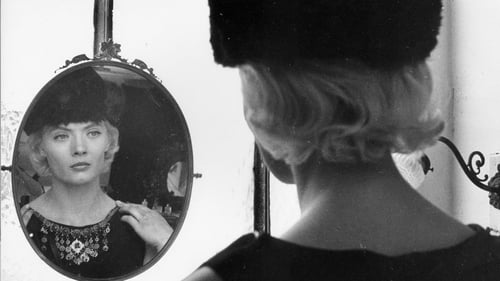
L'Homme aux Lunettes Noires / Actor in Silent Film
Cleo, una joven cantante, espera impaciente los resultados de un examen médico. Cuando una adivina que lee las cartas le revela que tiene cáncer y que puede morir, su inquietud aumenta. Tratando de ocupar su tiempo a la espera de los resultados, Cleo conoce a un joven soldado, a punto de partir para hacer el servicio militar en Argelia, al que confía su temor a la muerte.

Director
La joven y bella Nicole le pide a M. Constantine, un actor mayor y consagrado, que la lleve de vuelta a París desde los estudios de Billancourt. En casa de Nicole, ella, desnuda, lo invita a su habitación. M. Constantin -que durante el trayecto a París no había conseguido siquiera reunir la voluntad suficiente para establecer una conversación, o para atarse los cordones de los zapatos- no acepta la invitación de la joven porque halla demasiado pesado vestirse después. Una voz over dice: "Quién se atreverá a decir después que la ociosidad es la madre de todos los vicios, por el contrario, hemos visto una pereza tan fuerte que evita otros pecados. ¿No es esto moral? ".
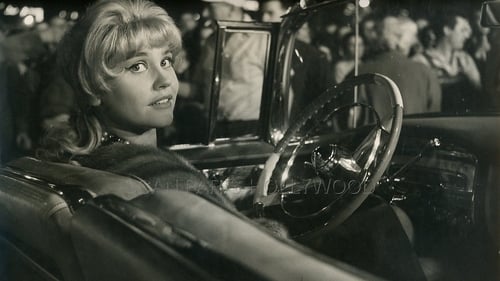
Director
Película dividida en siete cortos, cada uno de ellos protagonizado por un pecado capital.

Self
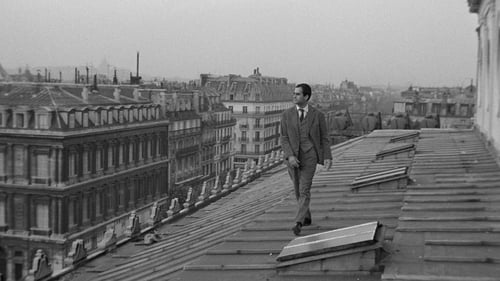
Hans Lucas
Una estudiante de literatura acude a una fiesta. Allí conoce a un americano y a un director de teatro. Tras la fiesta, su vida ya no será la misma. Notable drama que supuso el debut en la dirección de Jacques Rivette, crítico de cine de la revista "Cahiers du Cinéma".
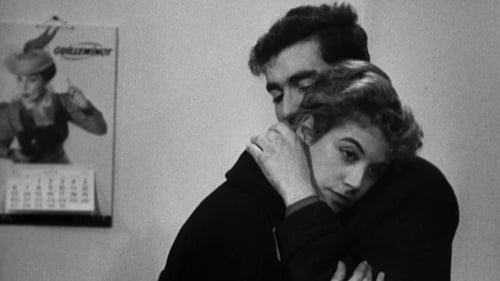
Walter
Walter y Charlotte caminan por un pueblecito de Suiza cubierto de nieve un día de invierno… Ella se va a ir…
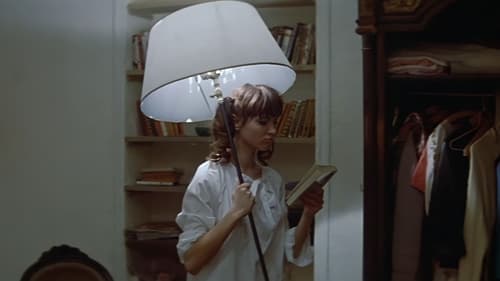
Title Designer
Una stripper quiere tener un bebé. Sin embargo, no consigue convencer a su novio, razón por la cual decide entonces pedir ayuda a su mejor amigo...

Writer
Una stripper quiere tener un bebé. Sin embargo, no consigue convencer a su novio, razón por la cual decide entonces pedir ayuda a su mejor amigo...

Director
Una stripper quiere tener un bebé. Sin embargo, no consigue convencer a su novio, razón por la cual decide entonces pedir ayuda a su mejor amigo...
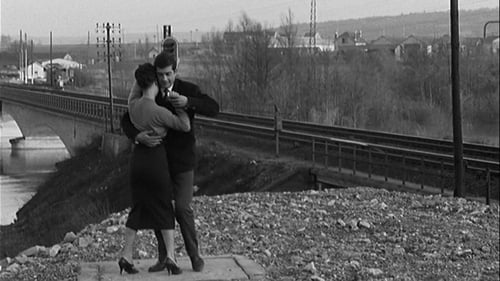
Writer
Una chica (Caroline Dim) se encuentra con que las calles que rodean su casa están inundadas debido a una prematura llegada de la primavera que produce un intenso deshielo...

Editor
Una chica (Caroline Dim) se encuentra con que las calles que rodean su casa están inundadas debido a una prematura llegada de la primavera que produce un intenso deshielo...

Narrator
Una chica (Caroline Dim) se encuentra con que las calles que rodean su casa están inundadas debido a una prematura llegada de la primavera que produce un intenso deshielo...

Director
Una chica (Caroline Dim) se encuentra con que las calles que rodean su casa están inundadas debido a una prematura llegada de la primavera que produce un intenso deshielo...
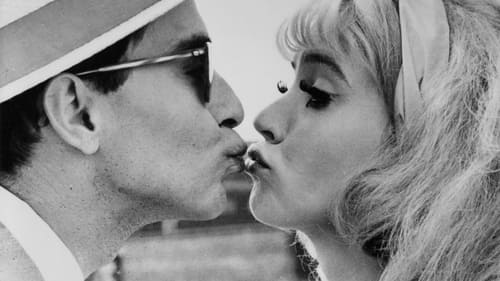
L'homme aux lunettes noires
A subtitle warns, "beware of dark sunglasses." Anna and her lover, whose looks in bowler and bow tie are reminiscent of a young Buster Keaton, kiss chastely on a bridge overlooking the Seine. He dons sunglasses and waves as she runs down a stairway to the river's edge, then watches in horror as she's knocked flat and loaded into the back of a hearse. In vain, he gives chase. Disconsolate, he buys a large funeral wreath and a handkerchief from sympathetic vendors. He removes the glasses to wipe his eyes and realizes they are the cause of all his woe. He replays the farewell without the glasses.
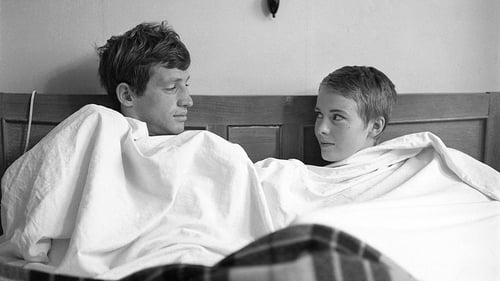
Director
Michel Poiccard es un ex-figurante de cine admirador de Bogart. Tras robar un coche en Marsella para ir a París, mata fortuitamente a un motorista de la policía. Sin remordimiento alguno por lo que acaba de hacer, prosigue el viaje. En París, tras robar dinero a una amiga, busca a Patricia, una joven burguesa americana, que aspira a ser escritora y vende el New York Herald Tribune por los Campos Elíseos; sueña también con matricularse en la Sorbona y escribir algún día en ese periódico. En Europa cree haber hallado la libertad que no conoció en América. Lo que Michel ignora es que la policía lo está buscando por la muerte del motorista.

The Snitch
Michel Poiccard es un ex-figurante de cine admirador de Bogart. Tras robar un coche en Marsella para ir a París, mata fortuitamente a un motorista de la policía. Sin remordimiento alguno por lo que acaba de hacer, prosigue el viaje. En París, tras robar dinero a una amiga, busca a Patricia, una joven burguesa americana, que aspira a ser escritora y vende el New York Herald Tribune por los Campos Elíseos; sueña también con matricularse en la Sorbona y escribir algún día en ese periódico. En Europa cree haber hallado la libertad que no conoció en América. Lo que Michel ignora es que la policía lo está buscando por la muerte del motorista.

Screenplay
Michel Poiccard es un ex-figurante de cine admirador de Bogart. Tras robar un coche en Marsella para ir a París, mata fortuitamente a un motorista de la policía. Sin remordimiento alguno por lo que acaba de hacer, prosigue el viaje. En París, tras robar dinero a una amiga, busca a Patricia, una joven burguesa americana, que aspira a ser escritora y vende el New York Herald Tribune por los Campos Elíseos; sueña también con matricularse en la Sorbona y escribir algún día en ese periódico. En Europa cree haber hallado la libertad que no conoció en América. Lo que Michel ignora es que la policía lo está buscando por la muerte del motorista.
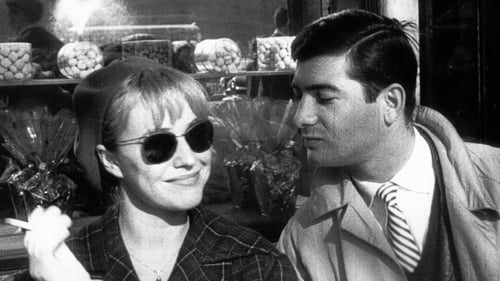
Director
Charlotte y Véronique han conocido cada una a un chico encantador, al ser amigas se confían el nombre y coincidentemente ambos se llaman Patrick, ¿será que ese es un nombre muy común o hay mas coincidencias en esta historia?.
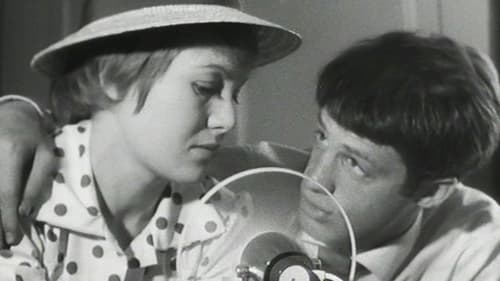
Jules (voice) (uncredited)
Un hombre recibe la visita de su ex novia e intenta reconquistarla. Claro que él no sabe que ella solo volvió a buscar su cepillo de dientes. (FILMAFFINITY)

Editor
Un hombre recibe la visita de su ex novia e intenta reconquistarla. Claro que él no sabe que ella solo volvió a buscar su cepillo de dientes. (FILMAFFINITY)

Writer
Un hombre recibe la visita de su ex novia e intenta reconquistarla. Claro que él no sabe que ella solo volvió a buscar su cepillo de dientes. (FILMAFFINITY)

Director
Un hombre recibe la visita de su ex novia e intenta reconquistarla. Claro que él no sabe que ella solo volvió a buscar su cepillo de dientes. (FILMAFFINITY)

Editor
Godard returned to Paris briefly before getting a job as a construction worker on a dam project in Switzerland. With the money from the job, he made a short film about the building of the dam called Opération béton (Operation Concrete).

Narrator (voice)
Godard returned to Paris briefly before getting a job as a construction worker on a dam project in Switzerland. With the money from the job, he made a short film about the building of the dam called Opération béton (Operation Concrete).

Writer
Godard returned to Paris briefly before getting a job as a construction worker on a dam project in Switzerland. With the money from the job, he made a short film about the building of the dam called Opération béton (Operation Concrete).

Director
Godard returned to Paris briefly before getting a job as a construction worker on a dam project in Switzerland. With the money from the job, he made a short film about the building of the dam called Opération béton (Operation Concrete).
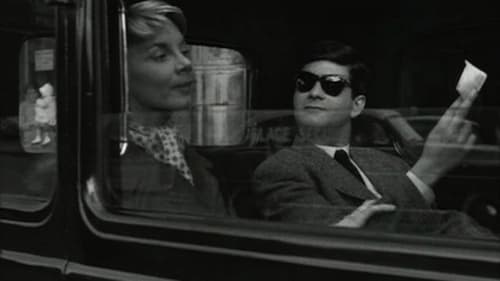
Party guest (uncredited)
En Le coup du berger (Jaque al pastor) se lleva al límite la semejanza entre una partida (de tablero) y otra (de la vida). Claire (Virginie Vitry), vive una vida matrimonial con Jean (Jacques Doniol-Valcroze) que la hace tener un amante, Claude (Jean-Claude Brialy). Parece ser que llevan ya un tiempo jugando de esa manera hasta que Claude hace un regalo a Claire que ella no puede llevar a casa porque su marido se daría cuenta o sospecharía de lo que está sucediendo con su matrimonio; así que los amantes buscan y encuentran la “estrategia perfecta” para poder engañar al marido sin que se dé cuenta.
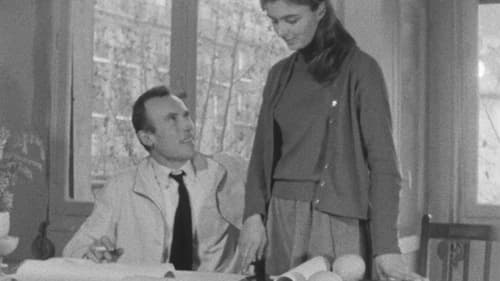
Producer
Some time after marrying a sensual girl, Pozdnychev realizes the only link to his spouse is that of physical love. When a violinist with whom his wife plays regularly the “Sonata to Kreutzer” appears, the young woman blooms in a new passion. From then on, her husband is eaten away by jealousy.

Ami Journaliste
Some time after marrying a sensual girl, Pozdnychev realizes the only link to his spouse is that of physical love. When a violinist with whom his wife plays regularly the “Sonata to Kreutzer” appears, the young woman blooms in a new passion. From then on, her husband is eaten away by jealousy.

Director of Photography
Agnès, a bourgeois young woman from Geneva, writes a letter to a friend, telling how she ended up cheating on her husband. Fascinated by the attitudes and gestures adopted by a prostitute to attract clients, Agnès decides to imitate her and seduces the first man she sees, sitting on a garden bench.

The Man Who Looks at the Balcony (uncredited)
Agnès, a bourgeois young woman from Geneva, writes a letter to a friend, telling how she ended up cheating on her husband. Fascinated by the attitudes and gestures adopted by a prostitute to attract clients, Agnès decides to imitate her and seduces the first man she sees, sitting on a garden bench.

Editor
Agnès, a bourgeois young woman from Geneva, writes a letter to a friend, telling how she ended up cheating on her husband. Fascinated by the attitudes and gestures adopted by a prostitute to attract clients, Agnès decides to imitate her and seduces the first man she sees, sitting on a garden bench.

Writer
Agnès, a bourgeois young woman from Geneva, writes a letter to a friend, telling how she ended up cheating on her husband. Fascinated by the attitudes and gestures adopted by a prostitute to attract clients, Agnès decides to imitate her and seduces the first man she sees, sitting on a garden bench.

Director
Agnès, a bourgeois young woman from Geneva, writes a letter to a friend, telling how she ended up cheating on her husband. Fascinated by the attitudes and gestures adopted by a prostitute to attract clients, Agnès decides to imitate her and seduces the first man she sees, sitting on a garden bench.
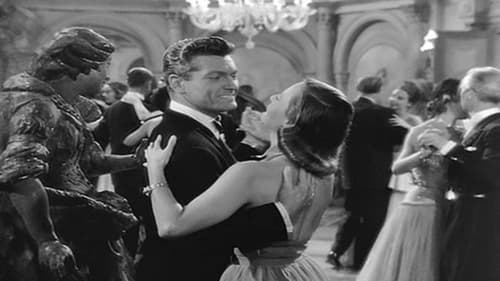
Un voyageur qui sort de la Gare de l'Est (uncredited)
Evelyne, a judge's young wife, falls in love with Rémy while vacationing in Italy. Upon returning home, she must decide between telling her husband and continuing to see Rémy.

Self
Though Godard got a little money from his family, he admitted that the money that went into Rivette’s film came from stealing and selling books from his grandfather Monod’s “Valérianum”. The film featured four actors: two women and two men, one of them Godard. According to Rivette, “It ran 40 minutes and nothing happens. It’s just four people sitting around a table, looking at each other. After ten minutes, people started to leave, and at the end, the only ones who stayed were Jean-Luc and a girl.” (Richard Brody)
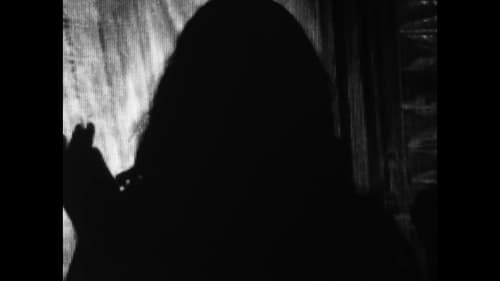
Godard

JLG
An experimental tribute to Jean-Luc Godard, his documentary works and his insights in our modern world.

Writer
La última película del legendario director Jean Luc Godard.

Director
La última película del legendario director Jean Luc Godard.

Writer
La siguiente película de Jean Luc Godard.

Director
La siguiente película de Jean Luc Godard.

Producer
A meditation on the French new wave film movement, MA BITE SENT LE FROMAGE ET LE POISSON stylistically pays homage to the icons of the movement, including its head figure, Jean Luc Godard, and Jean Pierre Leaud, one of the most popular actors of the movement.

Producer
A meditation on the French new wave film movement, MA BITE SENT LE FROMAGE ET LE POISSON stylistically pays homage to the icons of the movement, including its head figure, Jean Luc Godard, and Jean Pierre Leaud, one of the most popular actors of the movement.

Himself
An interview with Jean-Luc Godard around the time of his film Notre Musique.
